China 2020 / 80 min
Director:葉絲絲 Ip Szesze
Two empty-nest elderly people face emotional barriers in their journey to find a nursing home and love. Visas become an obstacle to their emotions. As time passes by, beneath the seemingly calm life, there's an underlying sense of unrest. Searching for a nursing home has become an important item on their schedule, with each visit feeling like an outing. Behind the warm atmosphere, however, lies a sense of helplessness. Where is the end point of their search?
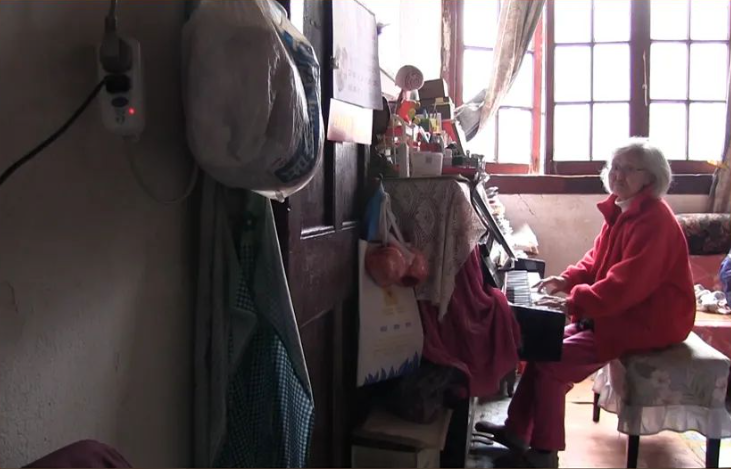
China 2017 / 97 min
Director:許慧晶 XU Hui-jing
Cui Zhen is a barber. As an outsider, she has always been rejected by the local people. In order to gain acceptance and respect from the villagers, she spent ten years transforming herself into a godly figure possessed by Chairman Mao. However, in the village, there are also godly figures possessed by Mao's propagandists, Mao Anying, Zhu De, Zhou Enlai, as well as other godly figures from ancient and foreign realms, all competing with her for territory and followers. The process of organizing Chairman Mao's birthday memorial service by Cui Zhen is full of twists and turns, turning the memorial event into a power struggle for various divine beings' rights and status.

China 2017 / 82 min
Director:王久良 Jiu-liang Wang
A documentary five years in the making that changes world trade policies! Beneath the veneer of modern advanced civilization, discarded plastic waste is shipped to China, becoming the means to feed a family of five in a neglected rural corner. In this isolated factory with limited information, can Yi Jie, an 11-year-old girl who longs to go to school, overcome numerous difficulties and break free from the constraints of her birth circumstances?

China 2018 / 85 min
Director:吳建新 WU Jian-xin
After Gao Lao's home was forcibly demolished, he sued the government, but the court refused to file his case. Out of frustration, Gao Lao roamed around, assisting others who faced similar demolitions. During this process, Zhizhi, Amei, La Jiaozai, and other residents from Zhongshan Road, who were also facing demolition, became staunch followers of Gao Lao. Despite Gao Lao's help, Zhizhi and others repeatedly lost their administrative lawsuits, and the forced demolitions continued. After years of unsuccessful rights protection, Gao Lao's advocacy approach was questioned, and the rights protection team gradually began to fracture...
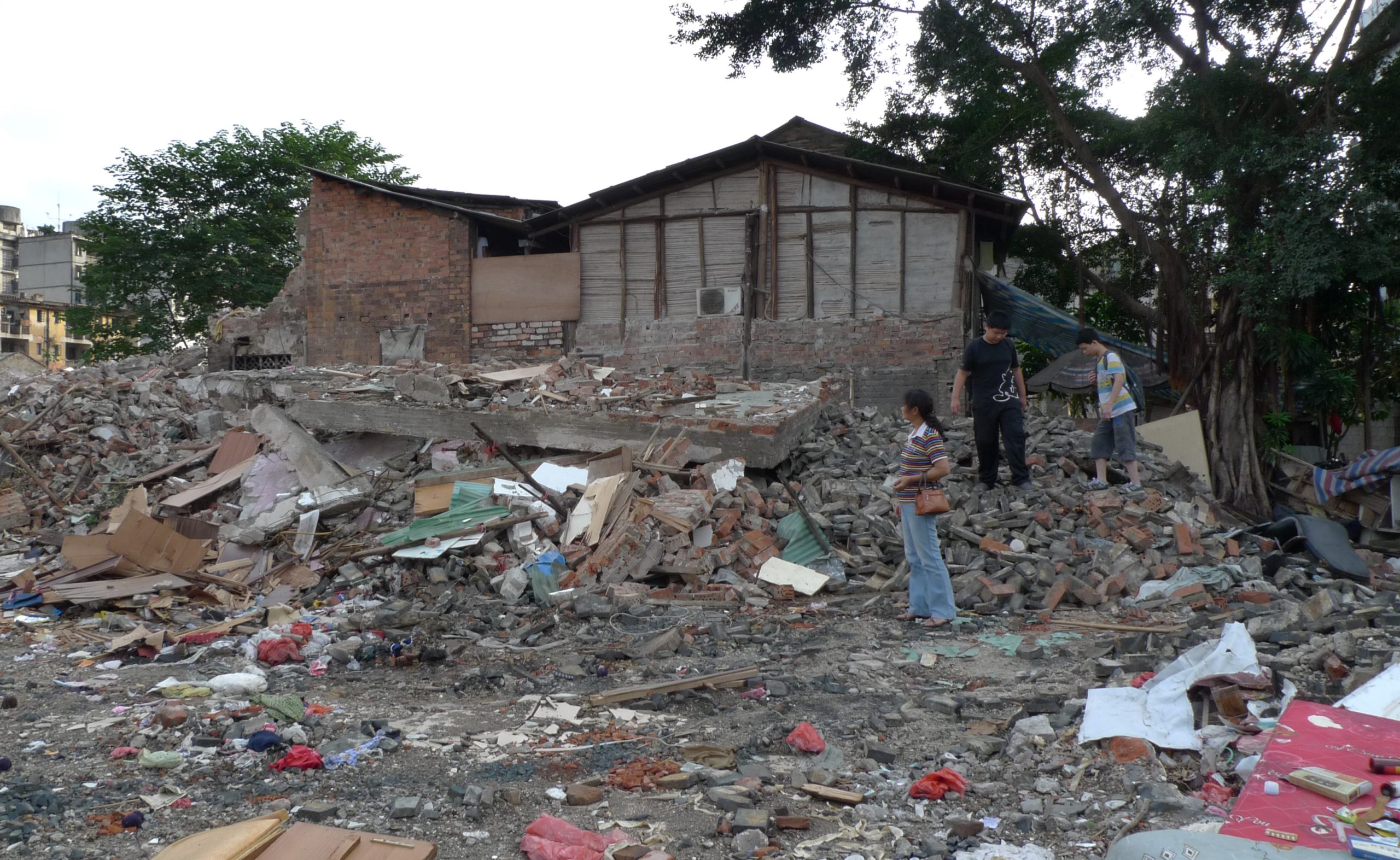
China 2015 / 61 min
Director:ZENG Xi
North of the National Stadium, the Bird’s Nest, in Beijing is Dong Xiao Kou, a place where 30 thousand Henan residents migrated. They earn a living by scavenging for worn-out recyclables, trying to find a shelter in this city.
In 2002, Lao Xu from Henan rented a wasteland of a hundred acres in Dong Xiao Kou, removed the weeds, paved the roads, built houses, and began to bring along his family and fellow townsmen.
In 2003, Lao Liu’s restaurant closed down. Carrying 3000 RMN, he took his family from Guangshan, Henan to live in Beijing, collecting and selling worn-out wood. For a decade, they’ve lived there in this so-called “waste city,” which is also known as the largest waste disposal and recycling station in Beijing.
12-year-old Wang Qin and her sister, Wang Yun, also grew up in this dilapidated part of the city where they call home, despite the fact that it will soon be demolished and redeveloped, and that they will be forced to move back to their estranged hometown in Henan.
The film records in prose style how families, clans, and villagers move collectively and relocate in Beijing, searching for a livable place and coping with the sense of marginalization and instability in the process of nationwide modernization.

Hong Kong 2014 / 37 min
Director:Kwong-yin Brian HUNG
In a city that worships money more than anything, there is a group of people who insist, “man shall not live by bread alone.” But living in recluse is not their choice either. Rather, they actively take part in society by producing art that aims to influence others in addition to fine-tuning their own minds.
Wong Chung-yu, the initiator of digital ink art, used to think that becoming a computer science major means a bright future. But as he enrolled in college, he realized he had no ambition in this
field at all. He then became a student of Wucius Wong, a master in Chinese ink art. After a while, he found himself trapped by convention and not breaking new grounds. He went to London to study digital art and found a new world for himself there. He adopted an artistic approach which invites viewers to take alternative viewpoints to see the otherwise “archaic” Chinese ink art. He brings together the best elements of western and oriental cultures to make art. His works have been selected into the Hong Kong Art Biennial for three times.
Other than brainstorming a variety of dance performances, choreographer Pewan Chow tries hard to break the invisible line that sets the performers and the audience apart. Her recent work, Maze by Passoverdance , invited audience to interact with the dancers. While the Hong Kong audience is used to sit and watch the performance, they got to enjoy a brand-new experience of seeing in a wild, free space where Maze by Passoverdance was staged. Even the sponsoring cultural agency officials, who have seen numerous performances, were amazed. All of the tickets of Maze by Passoverdance were sold out, which was unprecedented for dance performances in Hong Kong. It can be said that Pewen has reignited the audience’s passion and brought our good old days back to life.
Chung-yu and Pewan’s innovative acts have truly brought Hong Kong’s artistic circle forward. Most importantly, by showing their passion for art, they make people realize that no matter the difficulties, as long as one is determined enough, he or she will be able to move on with love.

China 2014 / 85 min
Director:WU Jian-xin
This documentary aims to show the stories of ordinary people on Zhongshan Road represented by night market manager Ninth Uncle, as well as the vicissitudes of life in a changing era.
Ninth Uncle is nicknamed “mayor of the night market.” He has been handling the Zhongshan Road Night Market for 30 years as a contract staff for the government. All kinds of private business owners gather up at the market; some are nice, some are not. Ninth Uncle rules the market with a slightly rough, gangster approach and it works well. With his hard effort, the night market grew from just a few street vendors to a full-fledged 300-stand food plaza. The Zhongshan Road has since been known far and wide for its gourmet food. As the market thrives, the business owners and the city’s district officer show more respect to him. Thus Ninth Uncle’s status is quite high in the area. Although he is almost 70, NinthUncle contributes most of his time to the night market. Whenever the night falls, he puts on his work uniform and brings his baton to go for a patrol in the night market with his team, no matter the weather. By midnight, he invites old friends from the market to drink and play card games. Dizzy, they then take a high-profile late night walk through the city.
Ninth Uncle is successful at the night market, but he is not doing well when it comes to family. He lived a rather rough childhood and divorced several times. Now that he is old, he fails to enjoy a good relationship with his children. One lucky thing is that his current wife Xiao Yang is a gentle lady who doesn’t like to fight. She takes very good care of Ninth Uncle, too. On this year’s Mid-Autumn Festival, Ninth Uncle and Xiao Yang got together with the family and worshiped their ancestors. As they ate, Ninth Uncle asked his son to get a stable job and marry soon. His son wouldn’t. The reunion ended in dismal.
While the century-old Zhongshan Road looks shattered in the day, it transforms into a busy golden route in the night. Amidst the bustles and hustles are people making money by selling different things. And among these people is Sixth Uncle, a night market business owner and long-time neighbors with Ninth Uncle. They have been sharing drinks and meals for decades like brothers. Theyare such good friends that they almost meet up daily to play cards and drink wine. Sixth Uncle was a gangster when he was young. He used to cheat in poker games and even spent three years on reeducation through labor due to gambling. After losing his clothing business, Sixth Uncle returned to Zhongshan Road to open a food shop and has been in the trade for more than 20 years since then. There is also Sister Hen whose old chicken porridge shop receives more customers as it draws deeper into the night. A few years ago, Sister Hen lost 2.8 million due to gambling. It cost her only more than a year to pay the debts. Now, she’s ready to rise again.
But the 30-year-old night market is counting its days, because the government will soon “renew” the Zhongshan Road. By then, this night market featuring gourmet food will cease to exist. As demolishment work goes on, the night market loses its customers. Sixth Uncle used to enjoy a great business, but his shop has now been torn down. He can do nothing but to be a street vendor again with his wife and a few staff. Some old stores announce that they will soon relocate. Ninth Uncle has a night market revival plan in mind, but he can only watch his kingdom decline day by day. The world is not on his side.
The Chinese New Year is drawing near, and a few more facades of the street are being knocked down. But Ninth Uncle is thrilled because neighboring Gonghe Road, now a night market street, is to be managed by him. Ninth Uncle is busy recruiting new managerial staff to keep the street in order and to secure their authority at work. At the same time, all of the private business owners in the night market are also getting ready for the busiest festival of a year.
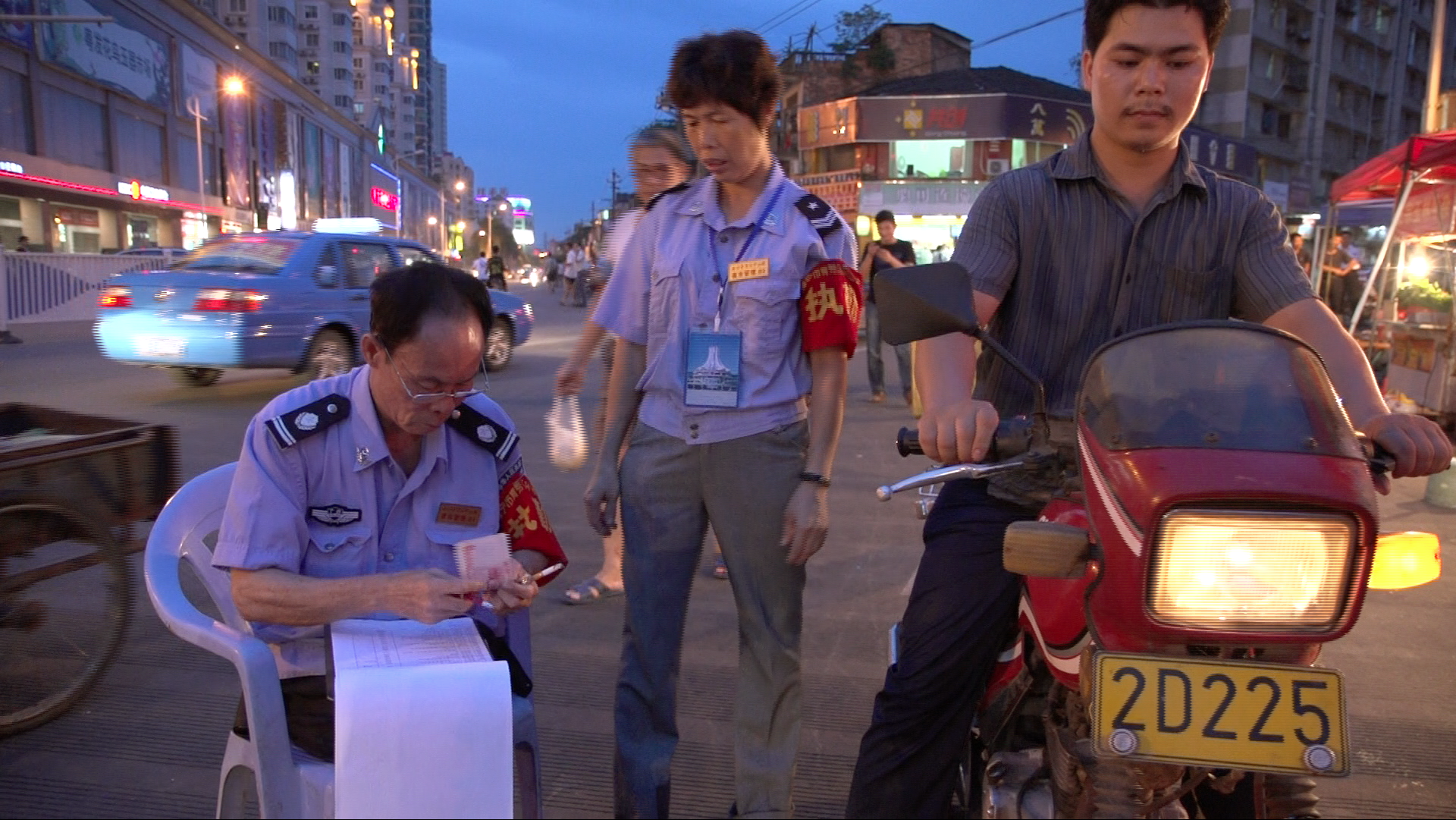
China /2014 / 75 min
Director:GU Xiao-gang
Some years ago, white-collar worker Lao Jia left metropolitan Shanghai to live on the idyllicChongming Island. He contracted, more than 200 acres of land, adopting “natural FARMING” to grow crops without using any chemical pesticides or fertilizers. His wife Li Zi, persuaded, followed along to begin a new life surrounded by nature with him.
Problems about food safety are many. Lao Jia had therefore attracted crowds of urban followers for his “back to rural villages” ideal and unique farming concepts. Local farmers disagreed, however. Some said he wasting this country’s food, because he was only growing crops affordable by the wealthy.
Of his followers, many are young volunteers who worked for him in exchange of accommodation. They had all dreamed about a wonderful village life, but were soon disappointed by solitude, which they are not used to, and lack of material pleasure as they arrived on the farm. Hence it was difficult for Lao Jia to train any youngster to be his successor, and he eventually took his wife as his sole farming disciple. They lived and worked closely together, but Li Zi realized at a later stage that, no matter she gave up on a city life to come to this village with her love, her marriage life had become anything but a happy one. The couple no longer supported each other out of romantic love, but shared the work more like just ordinary co-workers. One day, during a fight, they spoke of divorce. Lao Jia’s mother succeeded in persuading them to stay together; they even had a baby afterwards. Then, on another day, Li Zi had a conversation with some old village ladies. She learned that all of them had lived through the hardships she was living through. They raised their children on their own, farmed and worked, and tried hard to keep the family together. Li Zi finally felt peace of mind through this conversation, since most of the village women share the same fate. She started to accept her circumstances.
Just when the child was almost six months old, Li Zi found out that Lao Jia had been secreting dating another woman for the last three years. Lao Jia then left the farm, and Li Zi’s father also died unfortunately. Now that the two most important men in her life had left, it dawned on Li Zi that life is an ongoing journey. There were times when she happily followed Lao Jia on the farm. They planted seeds and seedlings grew. They harvested rice together, but Lao Jiao had long betrayed her when it comes to love.
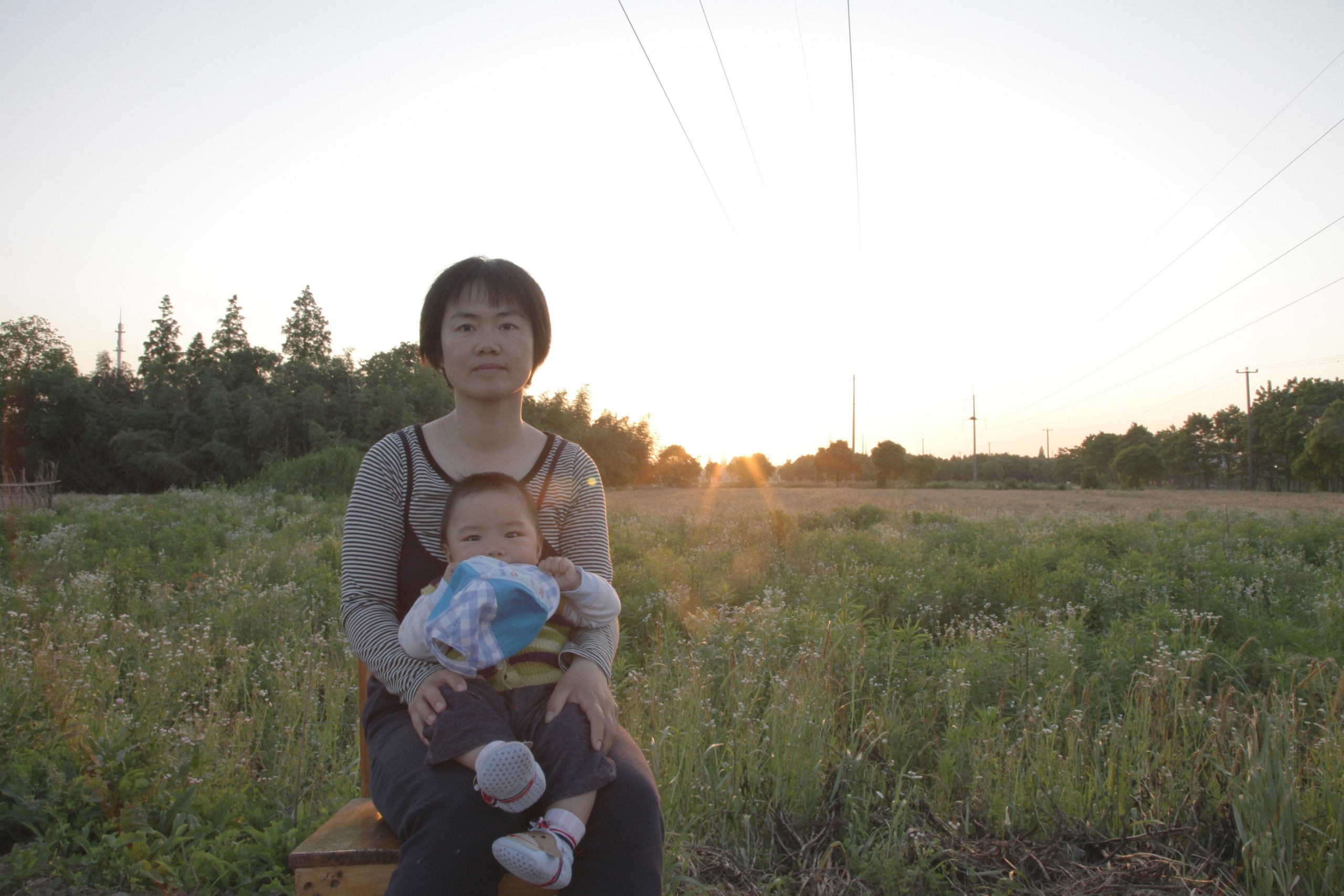
China2013 / 89 min
Director:GUO Heng-qi
Inside Dorm 206 live a few boys who are due to graduate from high school. They spend their days eating, chatting, playing cards, and playing with mobile phones, just to kill their youthful time while waiting for their high school diploma. Finally, they graduate from high school, but what are their next steps? Should they get a part-time job or keep pursuing a bachelor degree unwillingly?
When facing such students, teachers could hardly show their passion in teaching. It is impossible for them to get the students perform well in exams, nor getting decent salaries. Most of them just muddle along from day to day and waiting for the school to move. Only Teacher HO still cleans up the bulletin board, taking her job seriously as usual. Teacher HO is not good at social contact. Most of the time, she just sits along silently.
The original site of Duancun High School in Pingyao County, China used to be a temple in the Ming dynasty. It was a gratuitous elementary school in the late Qing dynasty and a higher elementary school in the early years of Republic of China. After the People’s Republic of China was established, it was turned into a county-operated junior high school and became a senior high school in the 1980s. In 2001, Duancun High School enrolled more students. As the number of students exceeded 1400, a new academic building was built next to the sports field. In the summer of 2011, the school merged with another two schools and its 150 students were transferred to a new downtown campus. Thereafter, grass started growing on the sports field. Only MI, the doorman, and his family still live in the old academic building.

Taiwan2013 / 60 min
Director:Albert J.L. HUANG
Everyone’s first school is their home. But in Chinese societies where the school system has fully matured, studying at home has become an anomaly. The importance Chinese place on education is well-known, all parents wish their children to achieve great success; but under a group consciousness where testing is at the forefront of education, manipulating teaching materials to create a diversified education program that addresses each student’s aptitude has become an important topic.
This film looks at four different families – the Polish and Taiwanese CHEN-WERNIK family, the traditional ZHAN family, the LUO family, who adjusted to traditional education yet still chose homeschooling, and the MALCOLM family, who had experienced hurdles in school and found solace in a non-traditional school – and examines their backgrounds which led them all to homeschooling, their situations, and their stories.
Taiwan is currently the only Chinese region which has legalized homeschooling, however its undertaking is still hindered by various problems. The four families in the film have all said “No” to the traditional education system and bravely forged their own paths, confronting mainstream education and societal values which have become riddled with disadvantages and difficulties.
Does the desire for your children to grow up happily contradict the desire for them to become successful? What kind of educational environment should we prepare for our children? What kind of people will society need in the future? How should families with different backgrounds and children with different talents select a proper education? What is best for children? All of these questions require long-term observation and experimentation.
We only have one chance at life. Education has an irreversible impact on children and deserves our concerted efforts.

China 2015 / 76 min
Director:LI Xiaofeng、 JIA Kai
If one day on a noisy street of a city or a dusty road of a remote village in China, you bump into a broken van wrapped in slogans and red flags, with high-pitched patriot songs of the 1960s that hurt your ears, you shouldn’t be surprised. It’s LIU coming for his “Learning From LEI Feng Campaign”.
LIU used to have a good job in the government, but twelve years ago he quit it and left his family behind to promote LEI Feng’s spirit and embarked on a journey that he called “the second long march”. Traveling around the whole country with his old van and few belongings, he is dedicated to the great ambition of establishing a university of Communist International.
The shooting of the film started in 2007 and lasted for seven years. The story unfolds as the protagonist’s journey goes on, a journey that keeps evoking his traumatic past rooted in the Mao’s era, aggravated by his incompatibility with contemporary China. To a certain extent, his personal past and present are intimately intertwined with that of China. The film reveals the subtle relations and the mutual construction between individual and history.
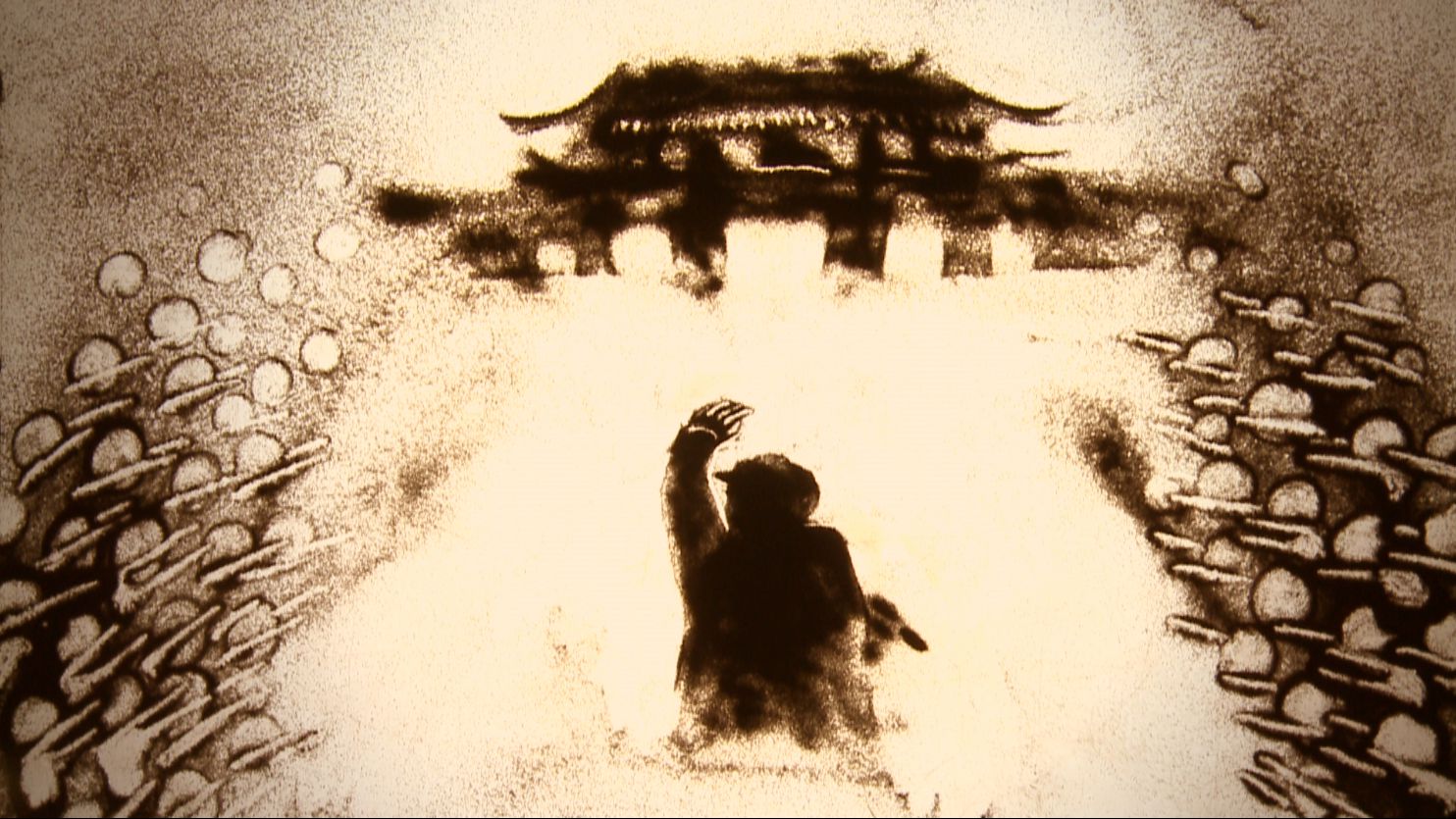
Hong Kong2013 / 72 min
Director:WONG Siu Pong
This documentary explores what it is like growing up in an adult world through children's eyes.
J SHEN and Jacky WONG are good friends, inseparable since they have first met in first grade. J was born to a single-parent family in Hong Kong, raised up by his Mainland-born mother in a small subdivided unit. In order to avoid leaving J home alone, his mother sends him to homes of his classmates in times of her leave to Mainland for visa-renewing. Despite of the fact that Jacky comes from a Vietnamese family, J is often placed under his family's care; the two turn out to become close friends.
Every morning, J and Jacky walk together to Fresh Fish Traders' School in Tai Kok Tsui, where they attend classes. Similar images of one taking care of another are not rare to find in the exclusive community of the grassroots. In the meantime, other classmates of them share the same life, including the Mainland-born trio of Frankie TUNG, Jimmy TAM, and Kiki WONG, a young girl who enjoys particular popularity in class. Hoping for better futures for their children, parents brought them to Hong Kong where they have no choice but to live in cramped and close quarters. The sudden change of environment forces children to re-identify themselves in face of the new culture and values. Is this an investment that will ultimately prove worthwhile?
What does "family" mean to these children? How do they perceive the hopes and dreams of their parents and the expectations of society to "success"? In return, will children's expectations of their parents and society be heard and understood by the adults?
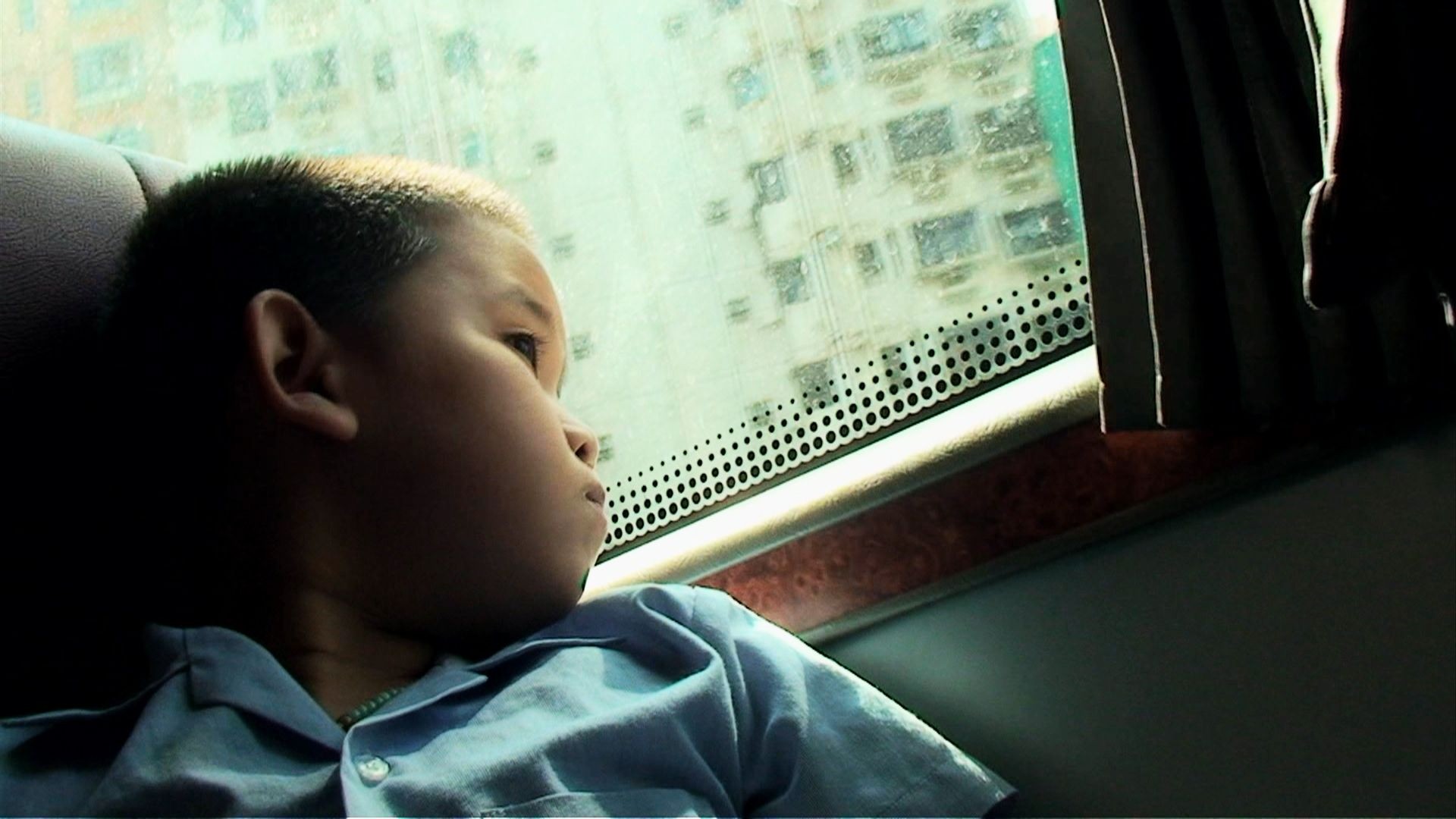
台灣 / Taiwan2013 / 75 min
Director:CHANG Chao-wei
In 1987, the Republic of China lifted the Martial Law and the first bona fide democratic constitution in Chinese history was finally in practice in Taiwan. Seven years later, on April 10th, 1994, a protest was held to call for education reform with four major propositions: practicing small-class and small-school teaching, setting up more senior high schools and universities, establishing the Fundamental Law of Education, and promoting the modernization of education. Efforts to realize such in every aspect of education are continually made through the Education Reform Committee of the Executive Yuan.
In the past 20 years, education reform in Taiwan had been through heated debates and still under scrutiny. In this film, reform advocators, government officials, critics, teachers, students, and parents were interviewed, in an attempt to review its purposes from a historical perspective and to gain insights on the dilemmas it faced along with reasons behind. We structured the film by seven classroom episodes: "History Class: Prequel of Education Reform", "Education Class: When Cram Schools Become Real Schools", "Ethics Class: New Life, Old Ethics", "Economics of Winning and Losing", "Public Administration Class: What Happened to the Public Sector", "Civic Class: General Plans for the Future", and "Biology Class: Species Diversity". Adopting the preluding textbook recitation by elementary school students and humorous stand-up comedy, a serious topic was presented in a light-hearted atmosphere. As we present the testimonies and opinions from reform advocators and witnesses, we hope to look, layer by layer, into the core of education reform and simultaneously into the core of sociocultural reform in Taiwan.
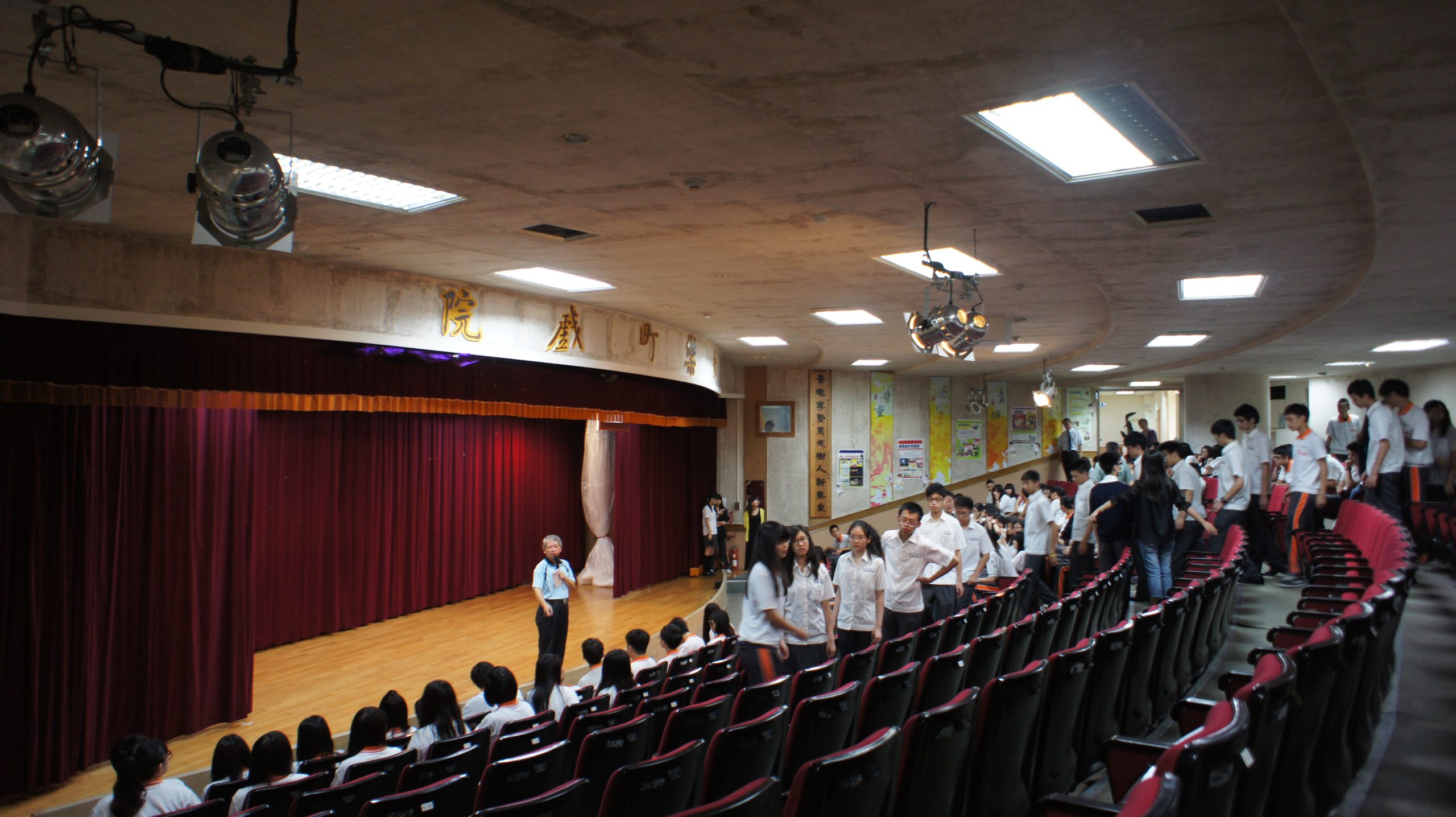
China2013 / 24 min
Director:SHI Yu-bin
The First Song documents the children who attend a kindergarten located on the inland mountain of Shandong Peninsula, China.
The freezing winter of the north locks people in. The classroom, which is less than ten square meters, is the whole world to these children. At a certain time of day, teachers will start boiling water for the children, who would line up spontaneously next to one another to collect their share. This ceremonious ritual enthuses them.
These children demonstrate a thirst for money for reasons we don't delve into for the time being. However, the thirst for money permeates in their games, which imitate their parents' logging trade activities. Every child plays his or her role to the perfection.
Holidays begin soon after the first snow falls and the kindergarten building takes on another function. During Chinese New Year, it becomes the communal shrine for the whole village, with elders watching over the temporary altar set up on the children’s desks and chairs. As the adults celebrate the New Year in their own way, what lies ahead for these children?
The children are idealistic and romantic by nature, and it is with these qualities they view the world around them. At such a tender age, they're unable to understand the complexities of life, or the rights and wrongs in the adult world. What they do understand is their own needs and desires. The complex mixture of innocent and serious expressions of these children probe us to rethink about the village’s reality.
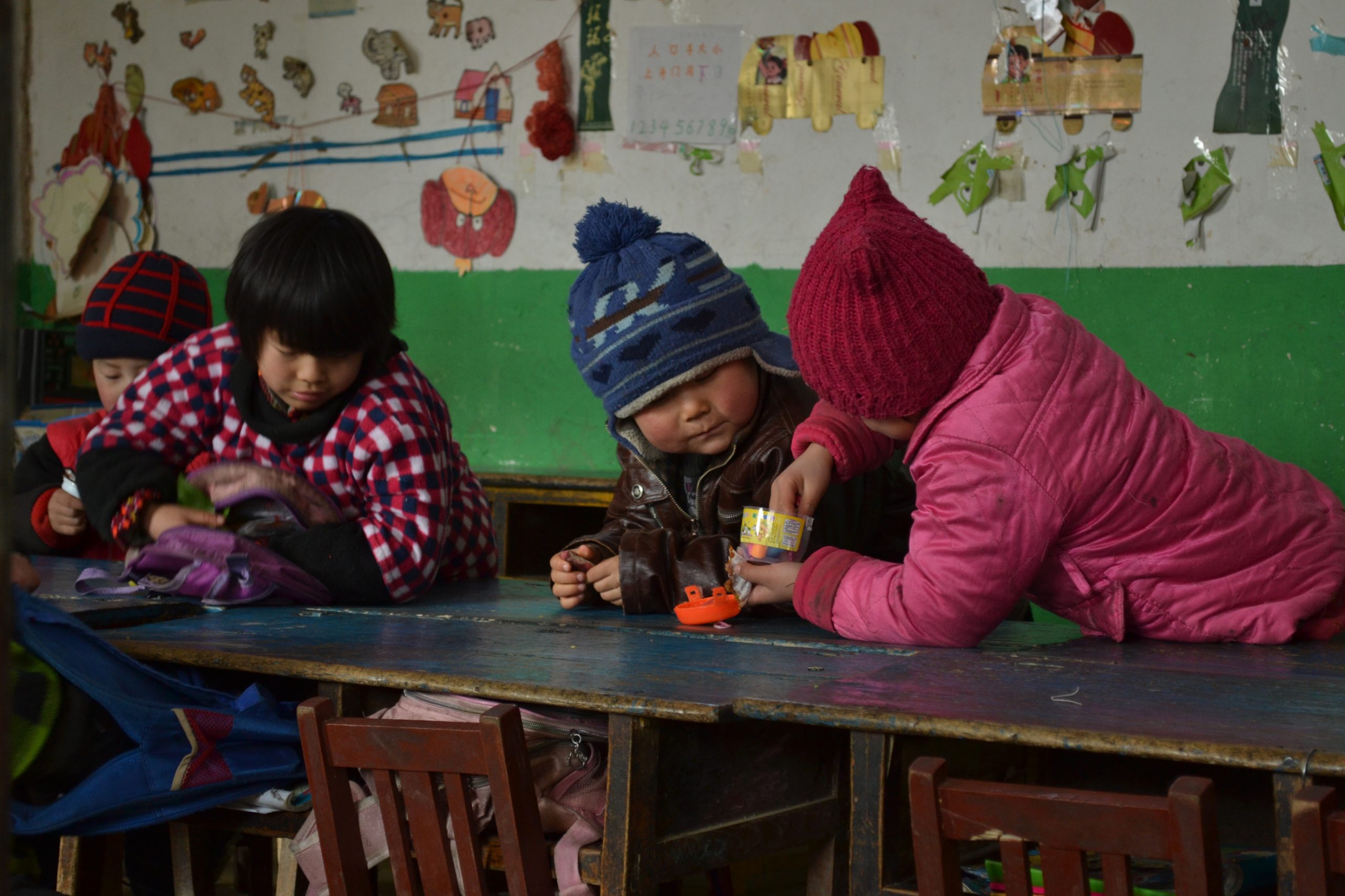
Hong Kong2008 / 54min
Director:CHAN Wai-yee
"Without fire burning inside your heart, you won't take such a job,? said YIN Zhao-jian, who suddenly said so while busy preparing for his election campaign.
Year 2003 is a rather turbulent period for Hong Kong – the economy was in recession, the government constantly implemented futile policies, SARS outbreak and, on July 1st, 500,000 people went on strike opposing the adoption of Article 23 of the Basic Law and demanding the resignation of their Chief Executive TUNG Chee-hwa. It was against this political atmosphere that YIN Zhao-jian gave up his social worker job, a 10-year long and steady career, and joined the political circle and participated in the district councilor election, which he had no idea about.
After being elected as a district councilor, he participated in the year 2004 Legislative Council Election. He was aware that he was not so well-known, and therefore, there was only a slim chance of him winning the election. He knew that Hong Kong people were generally not so enthusiastic about elections and he understood that the social trend could not be changed with the effort from only one councilor. Although all this made him feel frustrated, he still had the fire burning inside his heart and he felt that someone had to stand up and overlook the transitional period for democracy in Hong Kong.
However, he failed in the election and he was still a district councilor. The new Legislative Council Election for 2008 is just around the corner. Will he give another try? Is the fire within his heart still burning? Will the reality four years later again crush the dream 4 years ago?
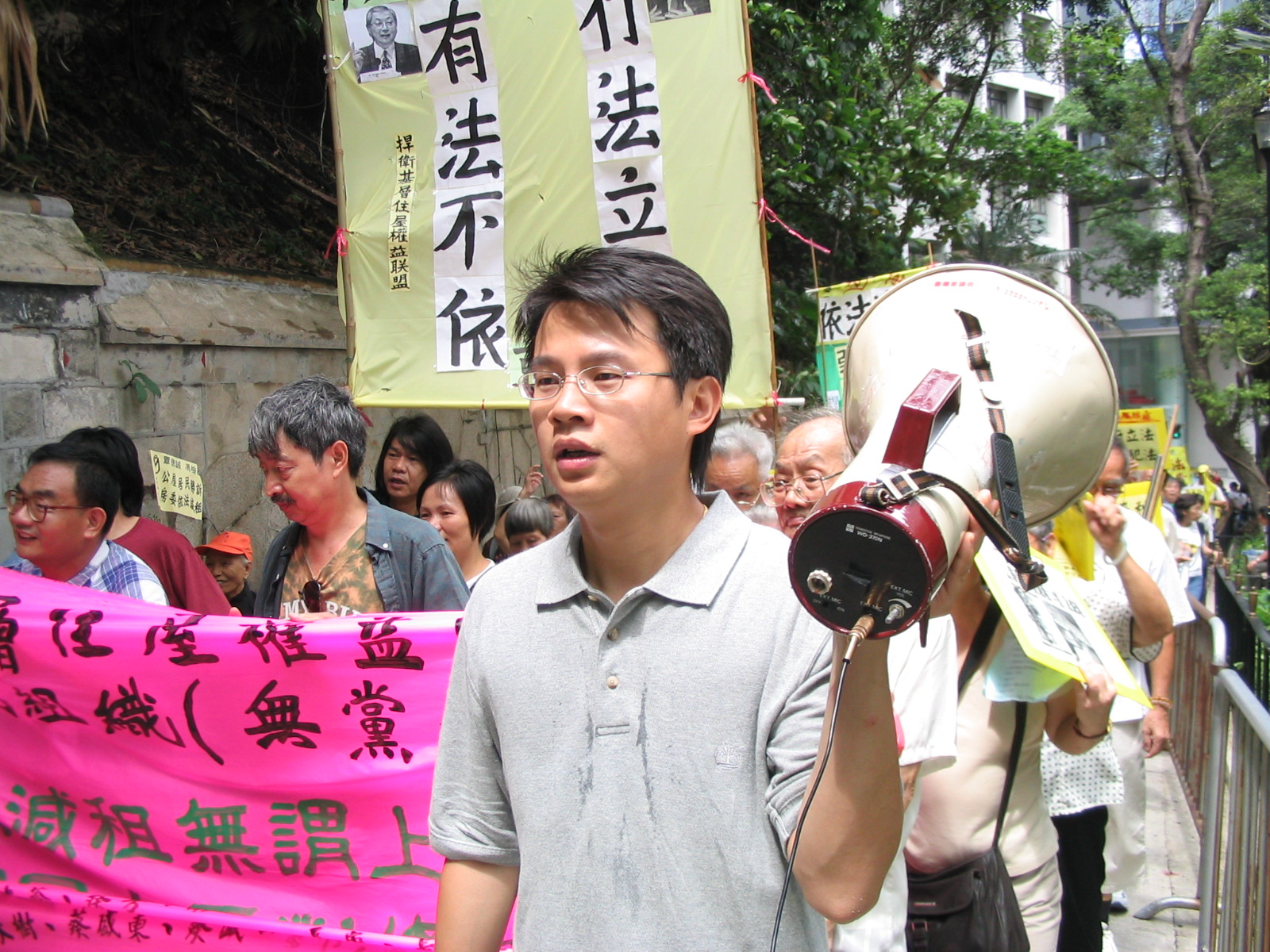
China2008 / 59min
Director:Tan Tan
One morning in Beijing, a group of young people in their early 20's are crammed in a flat in Tiantongyuan Community. They are just started their battle of the day, a battle of online games. Here is neither an internet café nor home to anyone of them. This place is a private studio that makes a profit by winning for others the golden coins and profits in computer games.
They don't know much about each other, and can't be bothered to know.
Their bosses are about the same age as them. For them, this is the place where they can make money while playing games without excuses. These young people work day and night in the virtual world; however in reality, their life couldn't be simpler. When it is time to eat, they eat take-away food in front of their computers and finish their dinner while playing games. After work or on weekends, the bosses just relax inside their rooms and play games, while the staff use their own account names to play games in an internet café for 2 to 3 days nonstop.
On the eve of Chinese New Year, the bosses had to go home, reluctantly, while most of their staff stayed in a dormitory. They just ate some dumplings which is one of the traditions for Chinese New Year, and they couldn't wait to go out – to celebrate Chinese New Year in an internet café. Tonight, most of the Chinese people reunite with their families, except these young people wandering between the high buildings across this large community. Everywhere else is festival with decorated windows, loud firecrackers and beautiful fireworks, but this has nothing to do with them, as if they don't belong to this world.
Half a year later, the studio had to close down due to plunge of coin prices and lack of regulation in their "market". The bosses transformed the studio into a dormitory and decided to continue renting the place until they all find a real job. As for the staff, some had gone home, while some stayed in Beijing to find other jobs and most of them try to work in other game studios - simply because in the real world, they feel at a loss, but in the game world, they are superheroes…
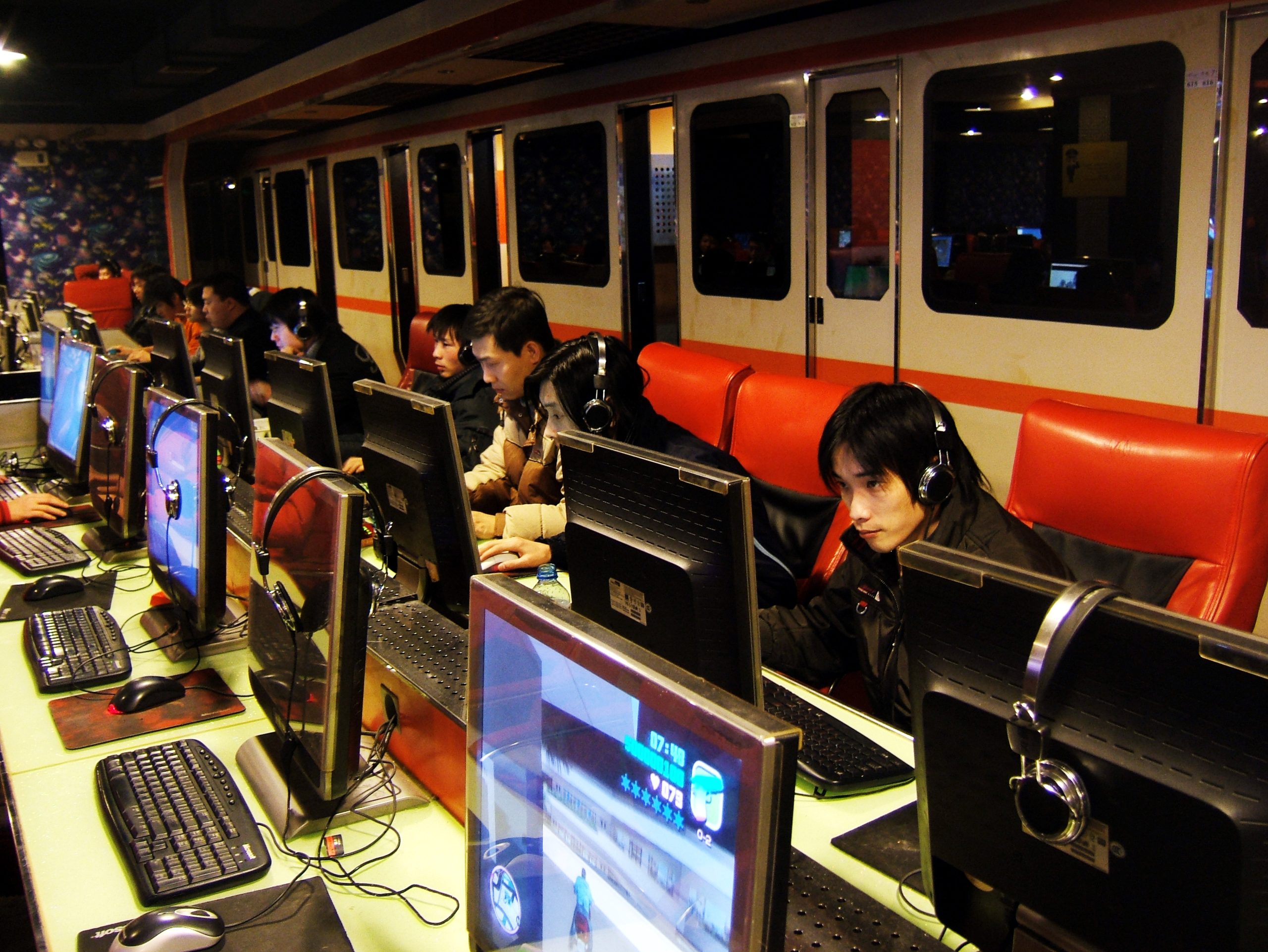
China2008 / 52min
Director:XU,Jun
The documentary is about a group of migrant workers in Shanghai and the camera is cast upon a group living in the work shed in a university, who come from the rural areas across China.
The documentary mainly focuses on the life of two groups of migrant workers. One group is mainly middle-aged migrant workers, who simply come and work to support their families. They live a rather monotonic life in the off-work hours and walking in the university hall and watching a performance by the university students would totally make their day. But as simply as this dream seems, it is almost beyond reach since they are often rejected by the guarding students for their identity and appearance. They cannot help but angrily questions these well-educated people "do you know it is us who built this hall?"This line often shut the people up.
Another protagonist in the documentary is WANG Bing. He is only 22 but he had make a living far away from his hometown. He holds drastically different values from those middle-aged workers and goes out shopping, drinking with his friends. He is just like those white-collar salary men, always pennyless soon after he gets his monthly pay. He has a girlfriend who shares the same work shed with him, which makes his fellow migrant worked all jealous about. But nobody knows how they are no longer in love, despite his efforts to please his girlfriend. In the end, his girlfriend left Shanghai and him, but before leaving, the girl confesses her love for WANG Bing, which had puzzled WANG Bing for a long time and eventually ends nowhere.
Money and love are the two main themes that can be found everywhere in the world. Shanghai the sleepless city, attracts many people with its splendid prosperity and extravagance, just like everyone's dreams; however, is there any superiority and inferiority between dreams? We always complain about the cruelty of life and are never satisfied with what we have today. Now, take a look at those so-called"migrant workers" who have left their hometown to work in other places. They seem to be telling us: live our life and be earnest and happy.

China2008 / 22min
Director:Guo Zi-dong
Huang cun, situated in the most beautiful county in China – Wuyuan. Though the village is like a haven of peace and happiness, Huang cun is rather isolated and lacks organized tourism development plan. Other hand, its neighboring village, Likeng, which is merely famous for a first Confucian school, seems to attract all the attention and obtains a noticeably different amount of tourists and the income from the tourists.
In fact, Huang cun has the same breath-taking landscape and the same elegant Huizhou style architecture. However, when people in Likeng started doing guided tours and opening up restaurants in their village, young people from Huang cun still had no choice but go working in big cities and leaving behind the elderly and children. Huang cun was also famous for its tea once, but that no longer brings in much income with the constantly plunge of tea price in the recent years. It is said that these years, the forest in the mountains was overexploited just so that people in Huang cuu can manage the minimum.
Mr. YU Duo-fu from Huang cun is more than 70 years old. He dreams to turn Huan cuu into a historical site like Lieng, and thereby improve the living conditions in the village, including renovating their heritage sites. So he volunteered to be the head of the village's tourism development committee. He heard that internet will get more people to know about his village, but only after he inquired their county tourism office, he realized that the advertisement commission for a year would cost a fortune. The following months, Mr YU Duo-fu disregarded the weather and went around highways connected to his village, with a paintbrush and some paint with him to write on walls "to Huang cun →". In the long holidays that followed, flocks of tourists surprisingly turned up in Huang cuu, because they saw the signposts.
It's been two years since then. The signposts YU painted are all weather beaten and some are even blocked by new buildings. One can just about to tell the vague attempt of the village's tourism business by the wooden signboard at the entrance of the village, saying "Admission Fee: 20 yuan each". Huang cun is too isolated and the bumpy roads just make it even more difficult for large vehicles, let along being inviting enough to any professional tourism planner to invest on infrastructure. YU Duo-fu now can only hopes that one day some rich man would come develop Huan cuu, like the way someone invested Likeng. He feels that only money can make things better.
To go to Huang cun from the county station, you need to make a transfer in Qinghua. Qinghua is where WU Dong-qing lives. WU Dong-qing is a teacher in a local middle school. He loves traveling and photography. He even single handedly set up a website about traveling information in Wuyuan and often answers questions from his online friends. After gaining some reputation on the internet, WU Dong-qing followed suggestions by his friends and opened a hostel just based on his own house. He named his hostel "post house" and aimed to make friends with local visitors and exchange travel experiences. Because of this, some tourists even gives up th opportunity of staying in better spots, just to come stay in his place in Qinghua.
Compared to Likeng, Huang cun does not have location, and neither financial resources; compared to WU Dong-qing, YU Duo-fu lack education and tools for communication. However, are they destined to lose?
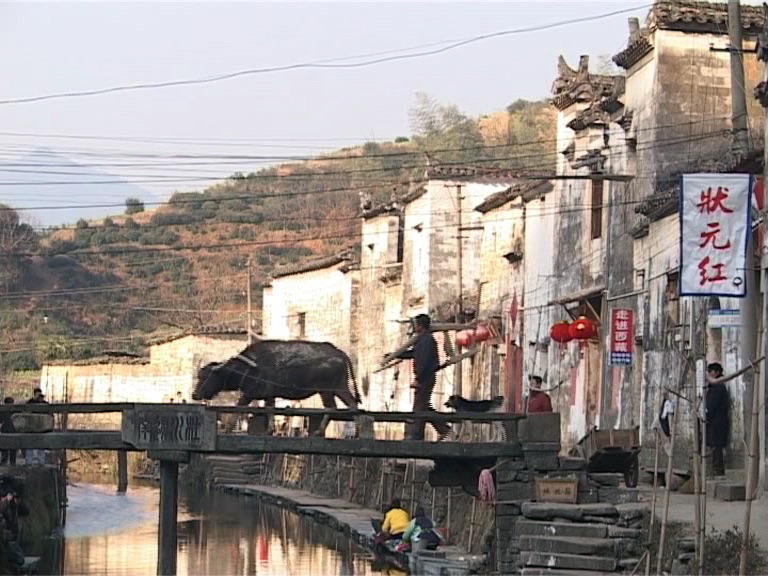
China2008 / 90min
Director:DONG, Jun
The DayuTemple was built in the Yuan dynasty and located northern of the ZhouyuanVillage, SudongTown, HangchengCity. The legend goes that during the regime by the emperors Yao and Shun, Dayu was assigned with the task of fighting against the flood in the Yellow River region. Dayu was so baffled yet devoted that he had not gone home for 13 years, even when he passed his doorway.
The old ferry port by the river Weihe has been there for years and plays a vital role for the nearby farmers transporting between one bank to the other of the river. However, the construction of the Sanmen Gorge Dam has totally changed the river Weihe to be suspended with sediments while forming an elevated river bed. People no longer see the wax and wane in the life along the river Weihe.
Villagers from Xinyu Village of Dali County chose to cultivate the land along the river bank and live in the areas raised higher above. It's been forty years since the Sanmen Gorge project was inaugurated. River banks along Yellow River are largely deserted, and the army entered the region aroused conflicts with local farmers, who just want to give their best shot for survival. Tongguan Fort is another place badly influenced by the Sanmen Gorge project. The ancient fort has disappeared as a result of the policy oversight by the government. The water level in the Sanmen reservoir would never have submerged Tongguan Fort, but it has been replaced by the Venice Hotel and Yellow River Fish Barbecue anyway, bringing even less visitors.
MA, Jian-wen is a folk poet from Fengdong Village of Huayin County. He received education up to only senior high school level and was resettled in Qinghai Province. In the 40 years in Qinghai, his senses of responsibility and independent thinking prompted him to accomplish several hundreds of poems, many of which are about the resettlement and life in exile. A trivial grass-root figure like him still insists on his dream to return to his hometown. Fighting against flood has always been the action front of Chinese politicians, and there are always more and more of such water conservancy projects to come. But today, do these political leaders see traps hidden behind the economical development?
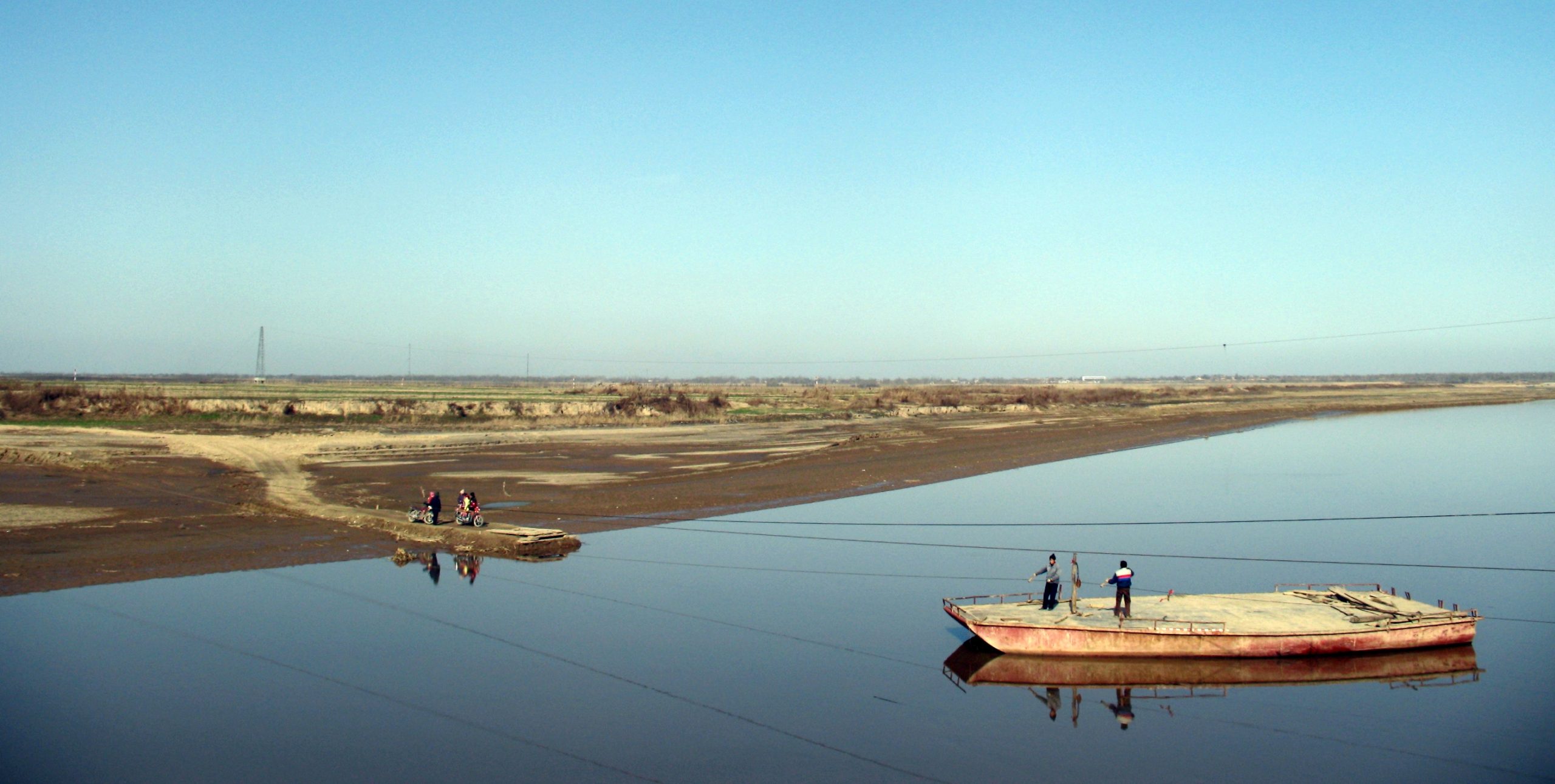
Taiwan & China2008 / 84mins
Director:LIN,Zhi-zhan
XIONG,Jie-feng is naive but not easily-influented. Different from other Chinese young people who prefer working in the cities, XIONG decided to go back to his hometown, Pingzhai Village in Yunnan Province, and started to plant the "Red Rice Seed," a kind of ancient species.
The so-called organic agriculture has had an age-old tradition in China. The skills have been passed from generation to generation. This is the major reason why farmers connect to the land both historically and emotionally. The "Red Rice Seed" can only be planted in a traditional and organic way. If the plantation was to succeed, the problems resulted from scientific fertilizers and the overuse of chemicals since the 20th century can all be resolved.
However, the "Red Rice Seed" can never be as easily planted and as richly harvested as the newer species. More and more farmers decided to use the new species, and that causes the extinction of the ancient species.
XIONG, who is simple-minded and straightforward, tries his best to overcome all the difficulties to plant the "Red Rice Seed". At the same time, finding a young woman willing to marry him seems even more difficult than plating the "Red Rice Seed" successfully...
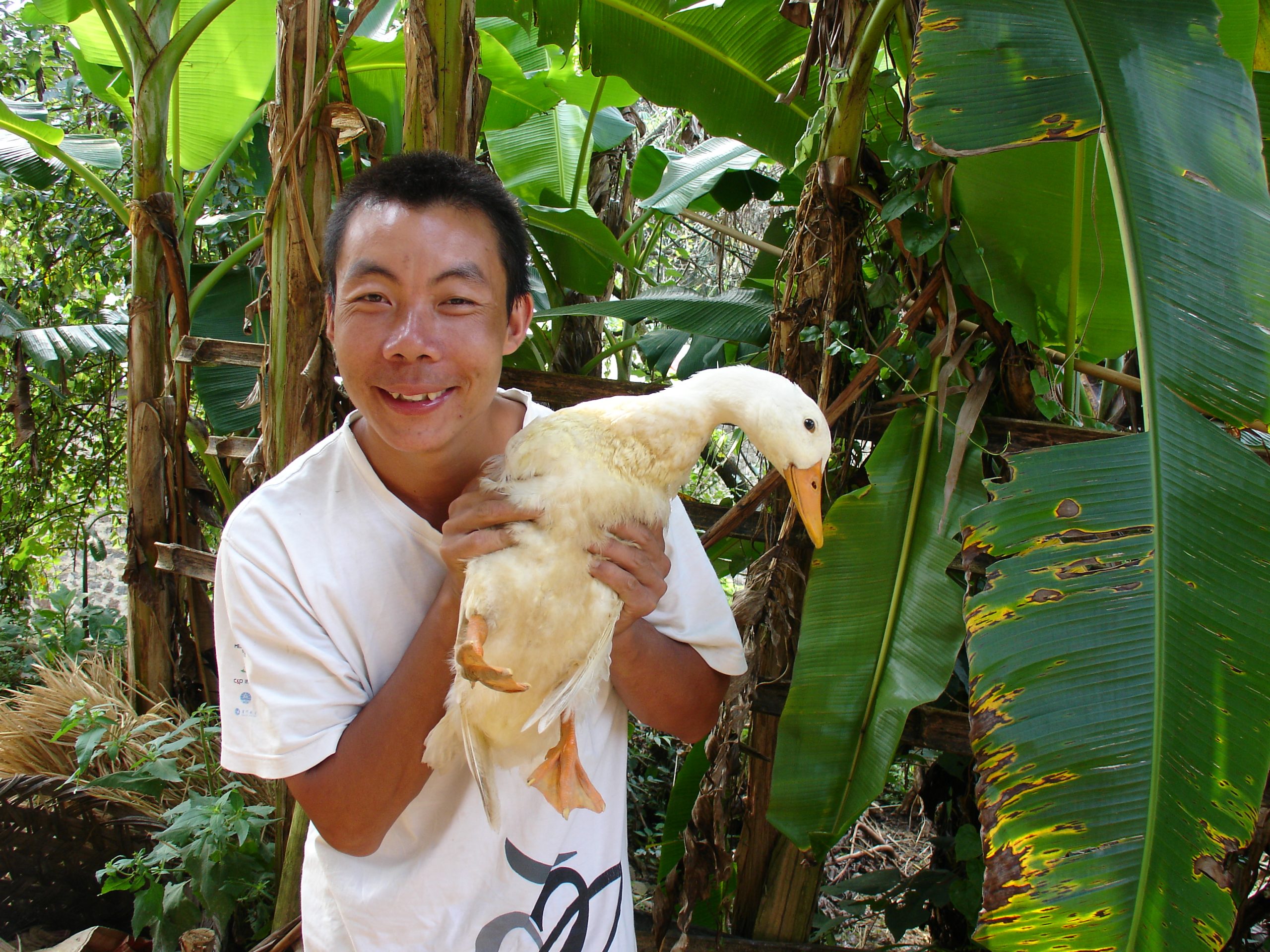
China2008 / 90min
Director:LI, Xiao-jiang
Ge Bu is a poet who came from the tribe of colorful clothes in the mountainous area. He stayed and taught there after graduated from middle school, and has since worked in various governmental positions. All along the way, he moved farther and farther away from the mountainous area, and the loneliness piled up in his mind just seems deeper and deeper, especially whenever he recites the tribal epics passed down from mouth to mouth. In 2007, the government transferred Ge Bu to his hometown and want him to convince the tribe to build a road connecting to the outside world for more interaction.
A-Ying, a singer, went blind at 18, when his eyes ached for 3 days. Being left with pure darkness and loneliness, A-Ying picked up his father's sanxian and self-learned to play the instrument of his ancestors, relying solely on his feelings and sensations. Since then, the sanxian is everywhere in his songs and music.
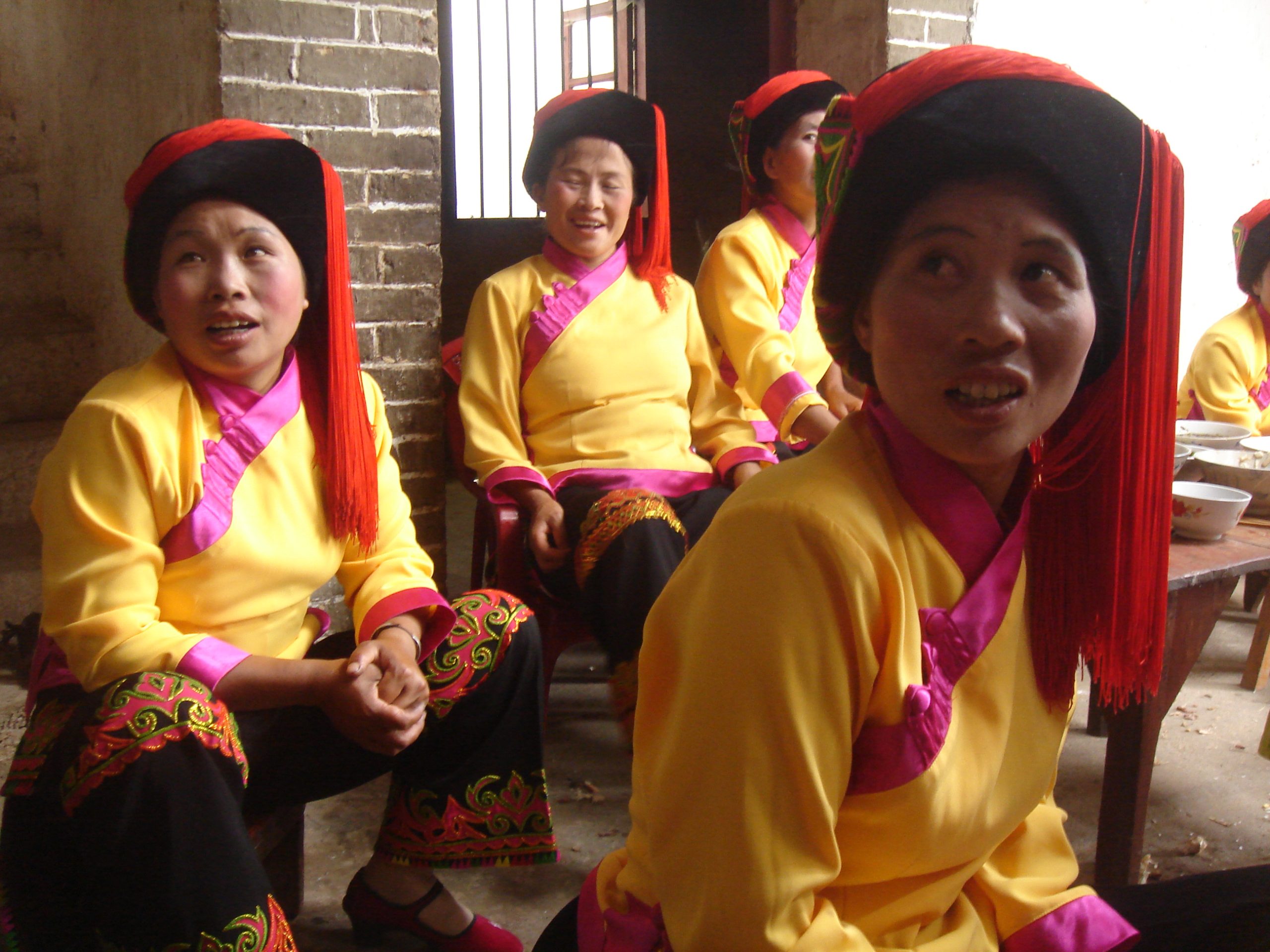
Taiwan2008 / 57min
Director:SU, Che-hsien
This is a documentary about two generations of hip-hop dancers.
"I'm 34 now and still dancing. Probably I won't stop until I win," said Alun. For him, hip-hop is his life, his oxygen. During the 90's, when Taiwan was just liberated from authoritarian, he formed the first Taiwanese hip-hop group, "The Party", and released two albums, even though he was subjected to vast pressure from the disagreeing eyes in the society. However, the group was somehow dismissed and the members simply went separate ways. Alun therefore went to Osaka, New York, Europe, Brazil and other places to explore different souls of the dance.
"He is totally nuts about hip-hop," as described by his students. For most people, no one understands what he really wants to say, let alone what he really thinks. This documentary records the period between 2007 and 2008 when Alun participated in the world break-dance contest in Paris. In order to cover his travel expenses, he even taught the basic amateur dances, just because – "I'm a dancer and if I had never tried for even just once, I would always regret it."
Another line of the story is about a dance group on the street of Taipei called "Eight Children", which was formed by a group of high school students. They are of the new generation born in the 90's and they are only about half of Alun's age. This new generation of hip-hop dancers doesn't have the pressure from the disagreeing eyes of the society, and in instead, they are fully sponsored by the praise and encouragement to a hip-hop culture.
"Eight Children" agreed one year ago that after this year's college entrance examination, they would come back and take part in the upcoming hip-hop competition. Will they have a happy ending? Or, who cares? Hip-hop needs not to be serious. All in all, just keep dancing!
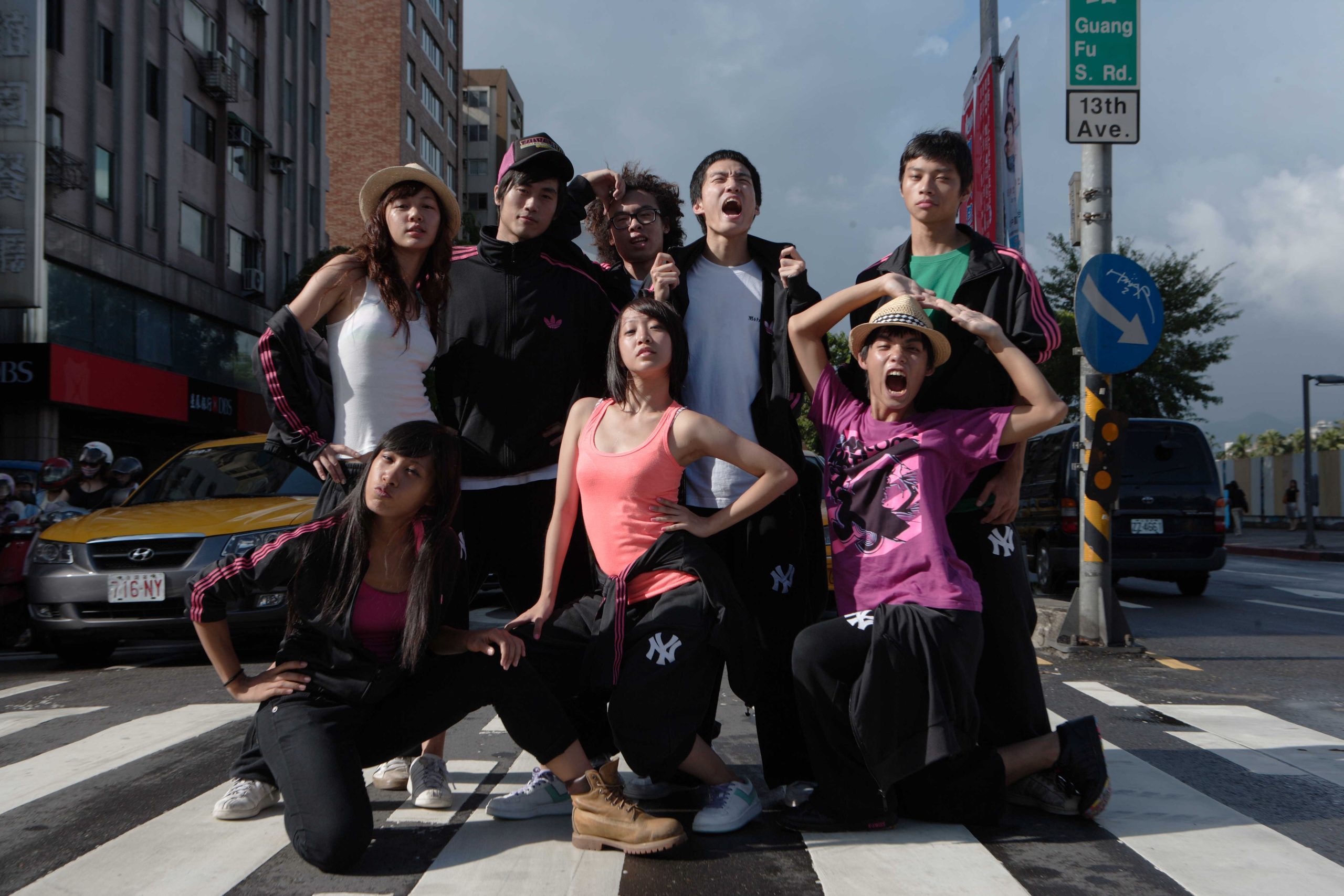
Hong Kong2008 / 93min
Director:CHEUNG, King-wai
KJ is a 17-year-old music prodigy from a well-to-do family, and lives an inexhaustible life provided by his doctor father. At the age of 11, he won his Best Pianist title at the Hong Kong Interscholastic Competition in Music and the opportunity to play Beethoven’s Concerto for Piano No. 1 with a professional orchestra in Czech.However, in the mind of the young talent, he began to question incessantly about his life, about “why piano?”, and “what is in life, if not music?”
There since, he who is turning 17 this year has not made much substantial achievements in terms of awards and performance opportunities, other than his temporary drop-out for two years. Sometimes, he is not happy ... tormented by reflections on a utilitarian reality and more.
This documentary goes deep down to one's mind: his thoughts, his struggles and his choices. It is a story of a genius, but also a story of everyone, lamenting over our unrecognized talents while brewing one's dream-come-true. Just as what we do in our daily life...
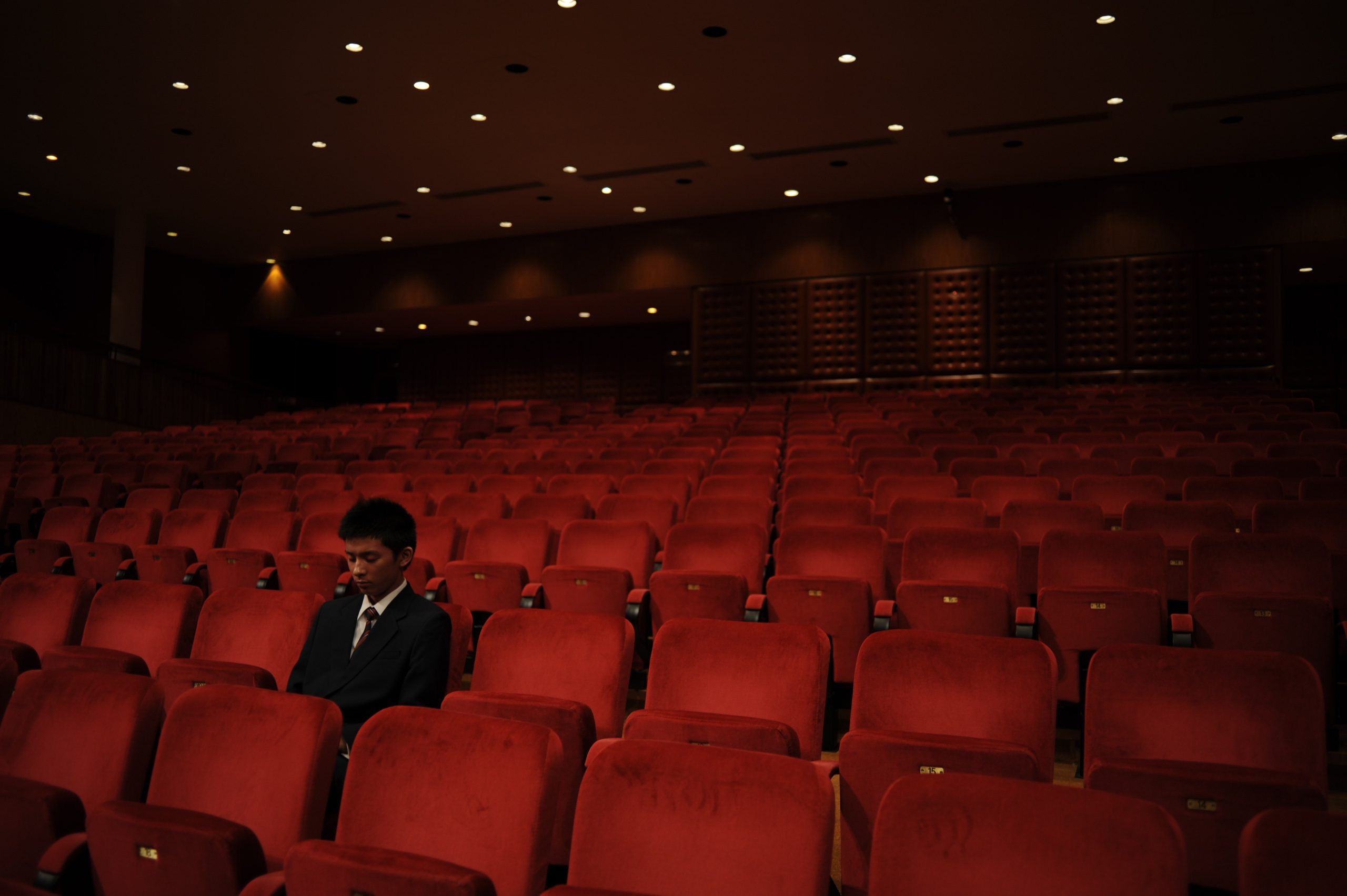
On an ancient Suzhou street with traditional white walls and black tiles, an old lady in her nineties lives with her caretaker who is in her sixties. The old lady comes from a prestigious family and was a national athletic star during her college years. After fleeing to Suzhou from Shanghai together with her lover, her life was filled with hardship. Her husband didn't leave her, but always betrayed her, and in the end passed away before her. After her husband's death, the old lady, who has no children, wrote a will that she will give all her money to the local university for a scholarship.
The old lady treated her will as a secret. However, everybody knew this secret. People couldn't understand why she would give money to students who had never taken care of her? Once while she was sick and had an unclear mind, her care-taker made her write a slip promising to give the caretaker RMB 20,000. In order to get this money, the care-taker began to study and learn one Chinese character a day. The old lady was hospitalized for several times and lots of valuable furniture was taken away by her niece, which made the caretaker envious. So, the caretaker and the niece began to bad-mouth each other before the old lady…
Before we know it, six years passed. Half of the old street was dismantled and the other half remains. With all the happenings in the world, the old lady lived through the frustration in her life and was revitalized at age 95, just like an ancient tree producing new buds. Under the autumn sunlight and with the caretaker by her side, she caressed the remaining bit of a photo showing her with rosy lips, missed her late husband, and pondered how her secret would one day be disclosed and what legacy she would leave — all things that seem meaningless to those around her.
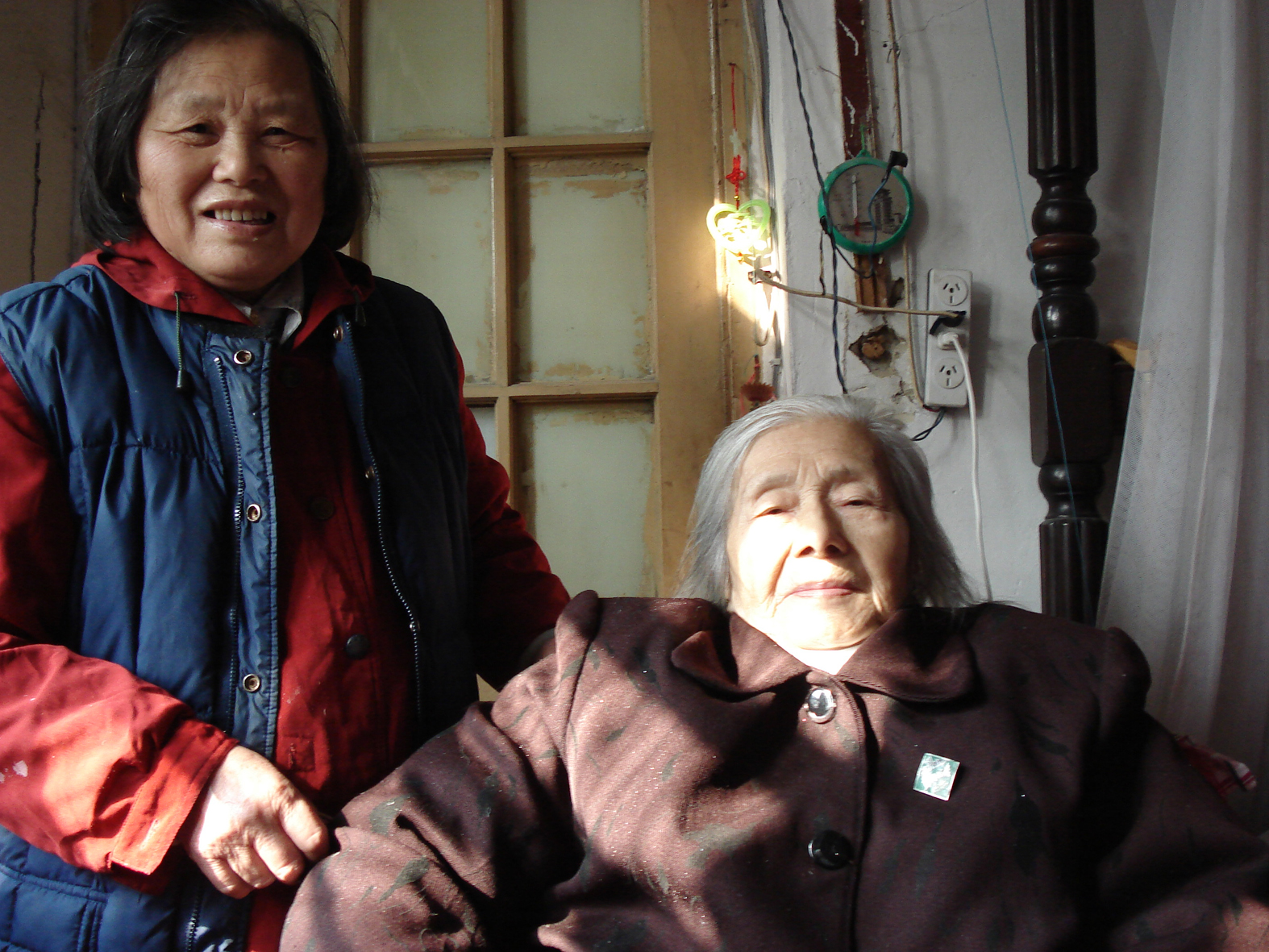
Taiwan2007 / 30min
Director:LIN, Hong-jie
In Taiwan, each month some 40,000 people on average become “card slave” as a result of failing to meet credit card payment. Some people pay off one card with more cards, but end up unable to meet all his debt obligations. Pressed by heavy debts, the living standards of card slaves make a dramatic turn for the worse.
Banks try all they can to promote consumer finance, encouraging the public to realize their dreams through borrowing. At the same time the banks by technical financial maneuvers transfer debts to some asset management agencies that mafia operations in disguise. As a result, these criminal organizations use various threatening and violent means, all under the name of law, to force card slaves into making payments — far from realizing dreams, borrowing has become a nightmare in itself.
More and more people commit suicide, and the number of borrowers continue to break record. Unemployed parents, underachieving in education, lowering of living standards – card debts is spreading social-economical recessions and other related social problems across Taiwan.
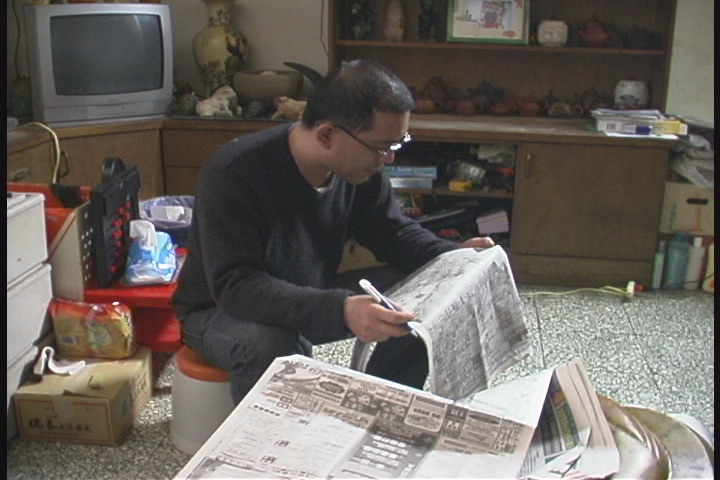
China2007 / 74 & 30min
Director:PENG, Hui
Twenty years ago, Wu Yu came to Shenzhen with his dream. As he earned RMB 300 a month by huckstering unmarketable beverage with his bike under the burning sun, he never expected to be a billionaire.
For many "rich people" in Shenzhen, their paths to wealth two decades ago was nothing more than smuggling, stock market and real estate market speculation. Wu Yu followed a similar path. A decade ago when he was penniless in Shenzhen, he made a killing in the then unregulated Chinese stock market. Later he turned to the property industry, in which he became a billionaire very quickly.
Bright and overconfident, Wu Yu is always proud of his judgment. However, he missed a fantastic opportunity in the bull market last year, despite his past successes playing the stocks. He got drunk once. With tears, Wu Yu told the director, "Peng Hui, now I'm rich, but I have no root, I float in Shenzhen, just like duckweed."

China2007 / 73 & 60min
Director:CHANG, Chao-wei
This is a time when business, trade and wealth prosper.
In the early spring of 2007, the Chinese stock market plunged, leading to a global panic in the world stock market. This has shown that the Chinese economy has already been integrated into the process of globalization. Later on the National People's Congress (NPC) and the National Committee of the Chinese People's Political Consultative Conference (CPPCC) were convened and issues related to people's well-being and the enlarging gap between the rich and the poor became the focus of discussion; in the government work report presented by Premier Wen Jiabao, great attention has been given to environmental protection, issues concerning with agriculture, countryside and farmers, education, health care and other public services. Therefore, after more than 20 years of development, the Chinese people have accumulated a considerable amount of money, yet they are also confronted with issues such as the distribution of wealth and the position of social values.
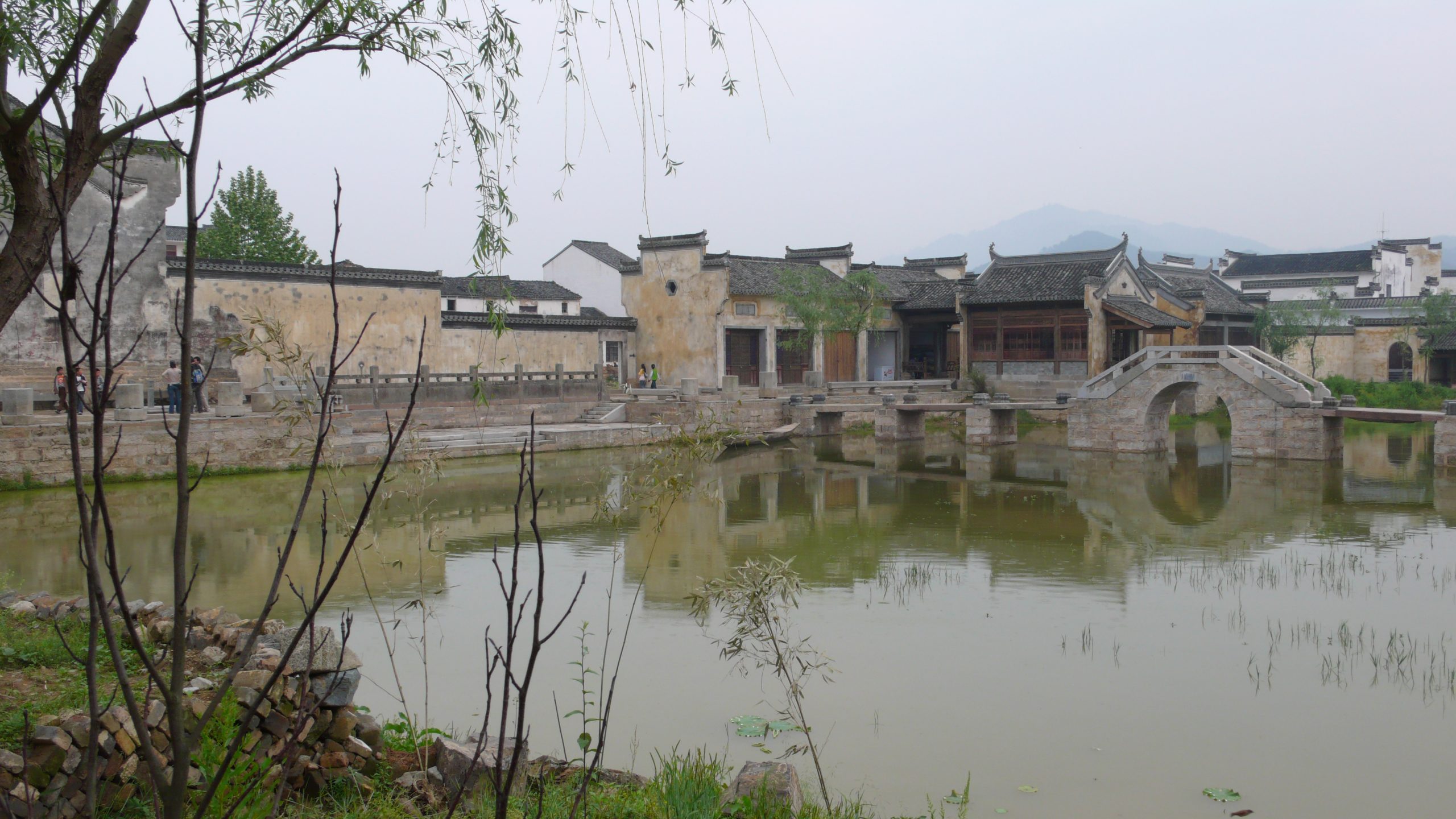
Hong Kong2007 / 73min
Director:CHEUNG, King-wai
No country in the world is without poverty, capitalist or communist. Affluent Hong Kong is one of the largest financial centers around the world.
According to a 2006 research by the World Development and Economy Research Institute of UN University in Finland, 1% of the richest adults in the world own 40% of global wealth, while the poorer half of the global population merely owns 1% of total wealth. In Hong Kong, the wealth gap the 5th highest globally.
The strange thing is that Hong Kong has no local beggars, merely those bold beggars from the mainland. No one begs, not even an 80-year-old collecting cardboard. Only the mad begs for money. The poverty in Hong Kong is hidden and secretive, as if poverty is a shame. The government builds beautiful public buildings for low-income residents, with big gardens and stores, as if Hong Kong has no poor people. Does Hong Kong have poor people? Why is poverty not seen?
Peaceful and prosperous, this kind of surface richness doesn't mean each Hong Kong residents has access to wealth.
So, what's the life like for Hong Kong's paupers?
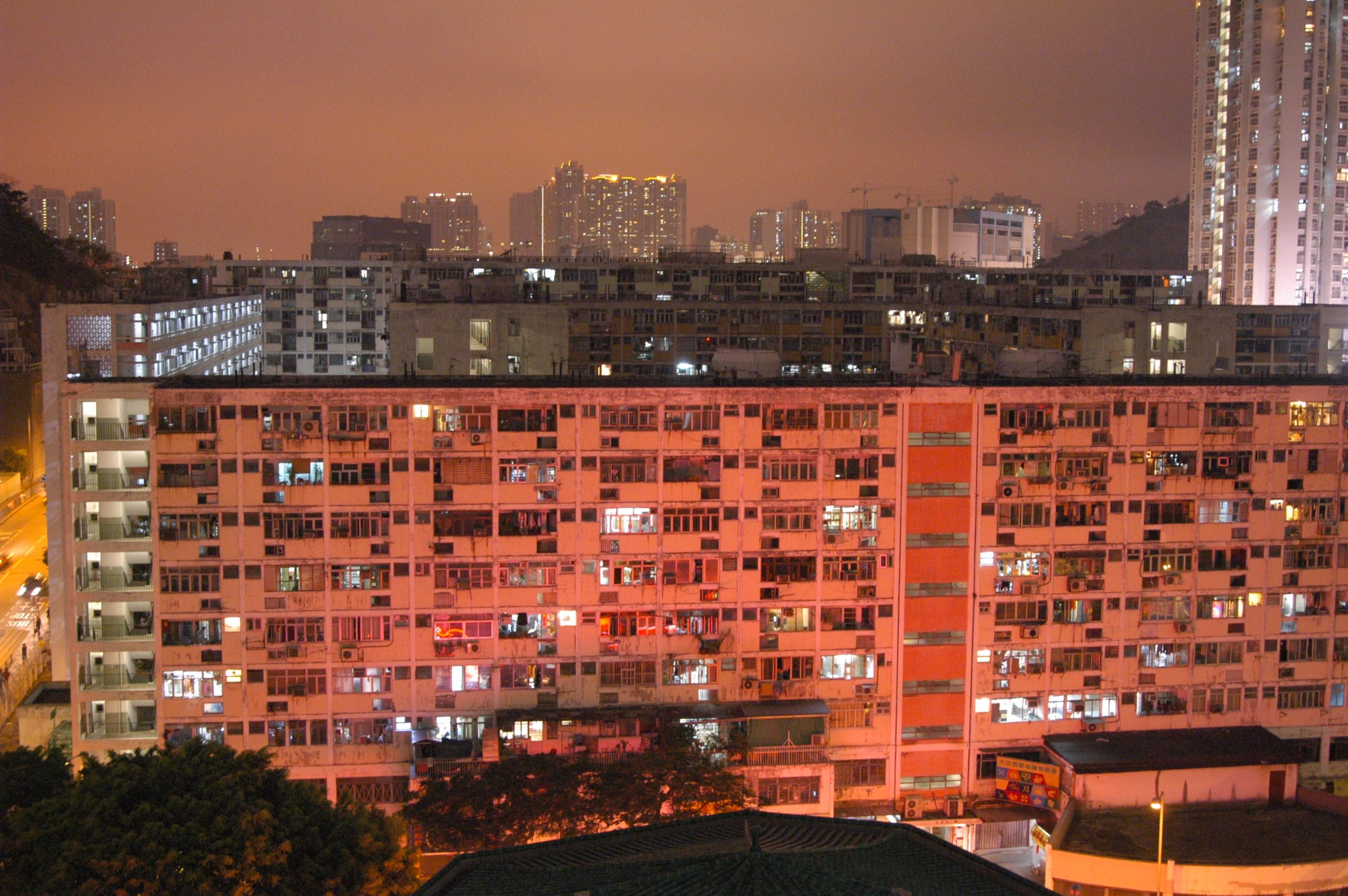
China2007 / 48 & 25min
Director:LI, Jun-hu
In 2002, Han Peiyin’s son Shengli was accepted in a university, and arrived to the city of Xi’an from his rural home. To pay for Shengli’s living expense and tuition, the Han sold off all valuable things in his home and came to work in Xi’an to make money. Though a lifetime peasant, Han firmly believed knowledge had the power to change destinies, and expected his son to be successful.
Job for peasant workers was getting harder to find as more and more peasants came to the city. Han could barely make RMB 400 a month, yet Shengli needed RMB 9,000 a year for college. The place Han stayed at cost one RMB a night. At night, he used a brick as his pillow. His son Shengli would think what to eat after class. He saw the bottled water his classmate was holding and could only think of taking the empty bottle and sell it for money.
Graduation was near. A shy youth, Shengli’s job prospect was dim. He felt this city was becoming further away from him. Despite his education, he might end up earning less than his father.
For years elder Han carried with him a notebook, in which he entered records of his borrowings. Most of them were small sums of 10 or 20 RMB. He also noted his expectations for his son: “Around the year 2013 or so, that is, roughly in my sixties, Shengli will take our family to Beijing for a sightseeing visit. We will have plenty of money by then…”
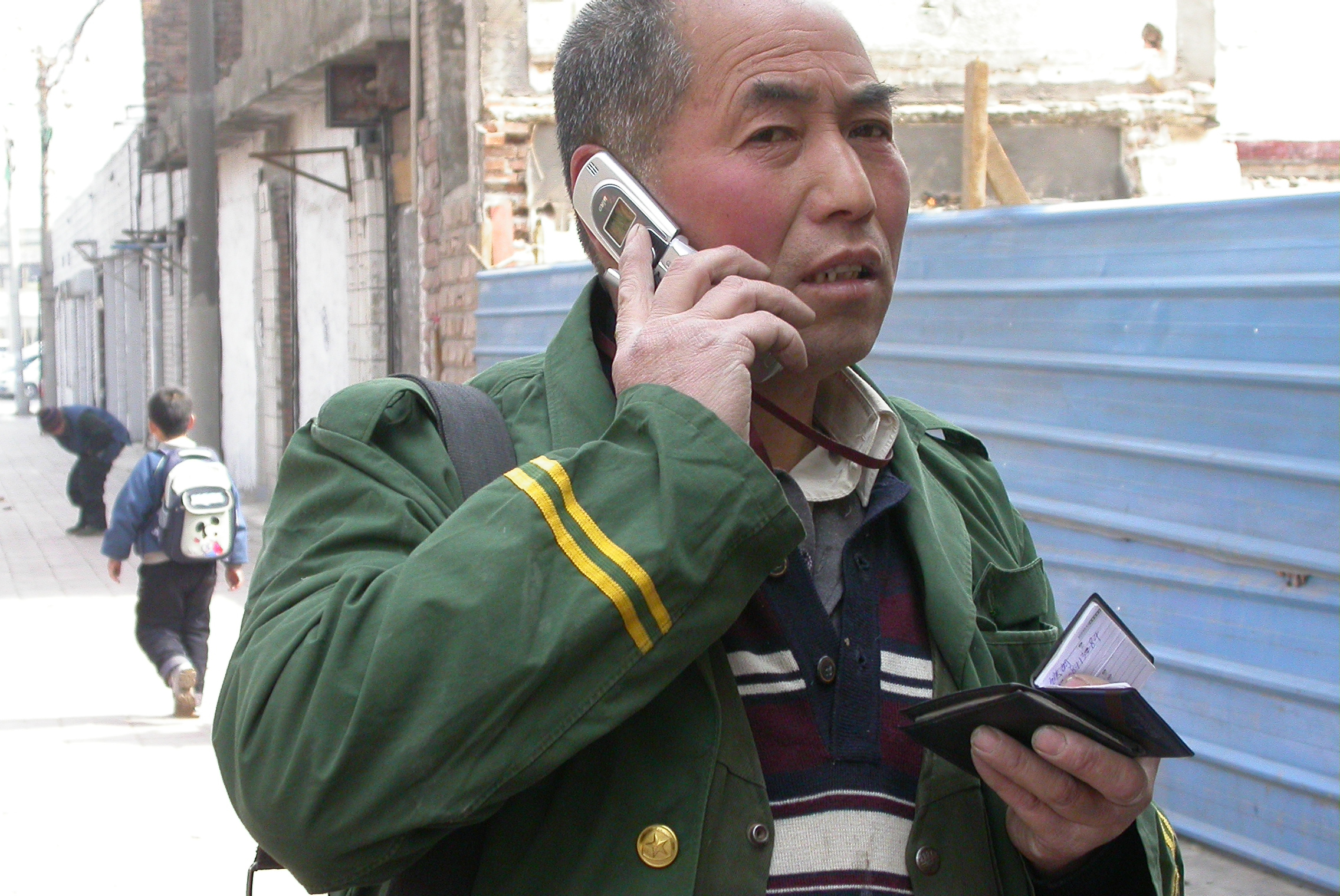
China2007 / 93 & 60min
導演:Du Haibin
Zhongshan, Guangdong Province. Many young off-farm workers are busy working for orders of next year. They work day after night, repeating monotonous tasks just like machines, they have to finish their tasks at the highest speed, since maximum output per unit time means that they will earn as much money as possible; but in fact, even that is rather slim. While they make numerous numbers of umbrellas in various colors and styles, they have no idea how much an umbrella earns for others.
Yiwu, Zhejiang Province. Advantaged geographic location gives this city an opportunity to become the foreland connecting “World Factory” and “World Market”. Local farmers’ lands were expropriated for enhancing economic development. A few lucky local inhabitants were compensated considerably for their land loss. Some of them are engaging in umbrella wholesale business in the newly constructed gigantic building, the so-called World’s Largest Small Commodity Market. Now they are nouveaux riches, and their lifestyle has almost changed completely, there seems no longer any relationship between the term “Farmers” and their current status.
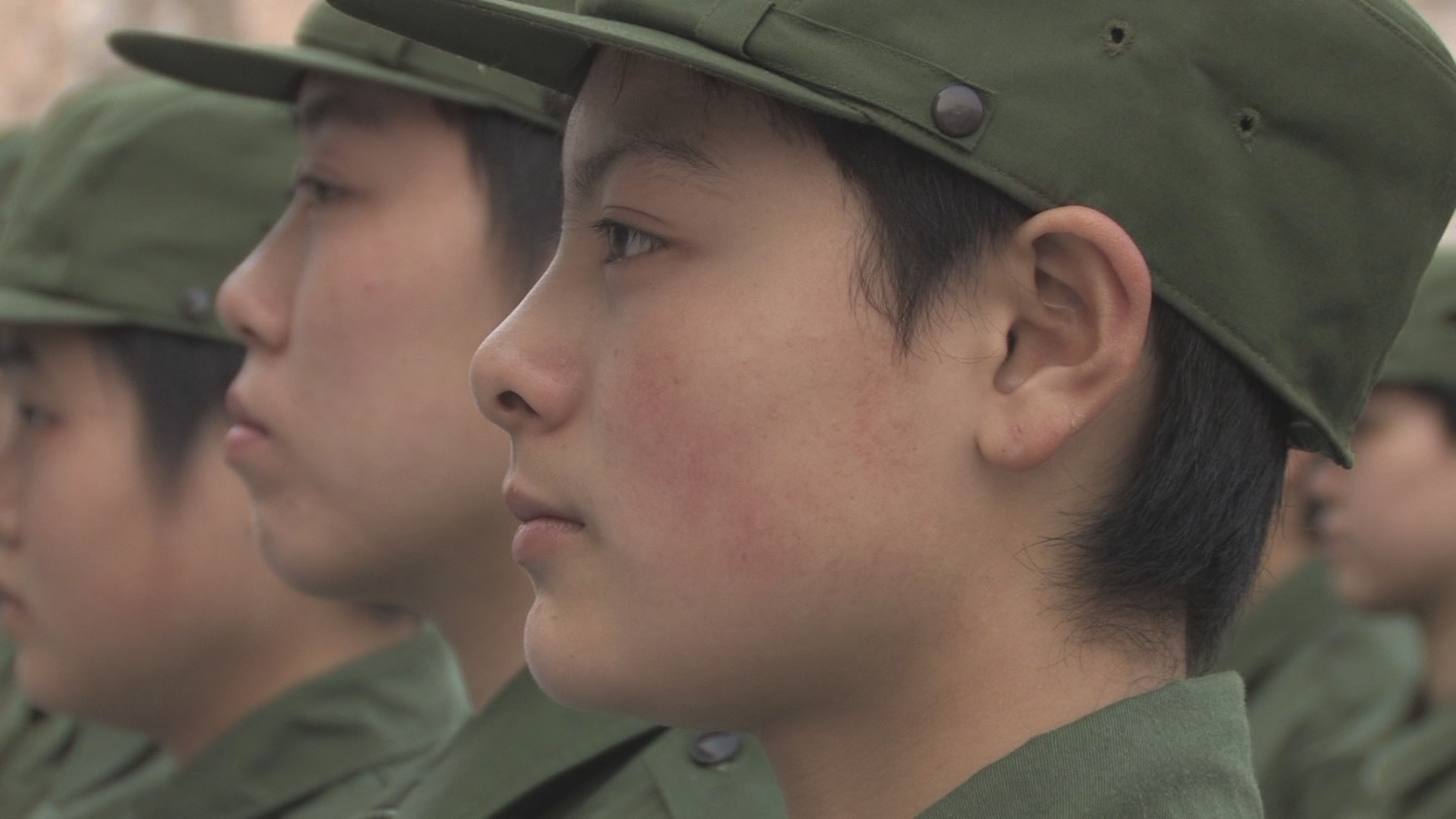
China2007 / 32min
Director:ZHU, Jie
“To learn about a city, you learn about its taxi drivers first.”
This is a very common but quite representative vocation. They come to contact with the largest number of people and are most familiar with urban life. This film describes money and life in the eyes of taxi drivers in five representative metropolises in the Greater China Region—Beijing, Guangzhou, Hong Kong, Taibei and Singapore, and in two characteristic small and medium-sized cities—Chengdu and Dieling.
Located in different parts in and outside of China, these cities represent different cultural traditions of China, and become a microcosm of the Chinese city. How people live in these places, what do they think of their lives and money in particular? We find a very interesting contrast among the different cities. Through similarity and discrepancy, we outline Chinese people’s views on money and life in 2007.

Contact Mail